The Suicides 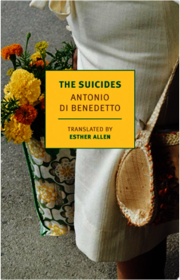 Hindoo Holiday: An Indian Journal 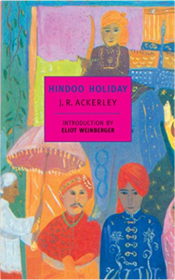 My Dog Tulip: Movie tie-in edition 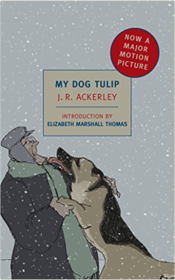 My Father and Myself 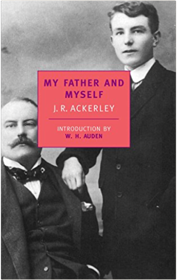 We Think the World of You 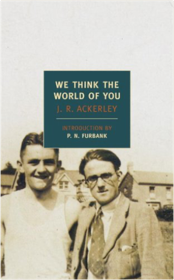 Compulsory Games 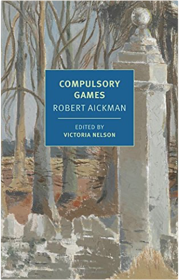 Robert Aickman’s self-described “strange stories” are confoundingly and uniquely his own. These superbly written tales terrify not with standard thrills and gore but through a radical overturning of the laws of nature and everyday life. His territory of the strange, of the “void behind the face of order,” is a surreal region that grotesquely mimics the quotidian: Is that river the Thames, or is it even a river? What does it mean when a prospective lover removes one dress, and then another—and then another? Does a herd of cows in a peaceful churchyard contain the souls of jilted women preparing to trample a cruel lover to death? Published for the first time under one cover, the stories in this collection offer an unequaled introduction to a profoundly original modern master of the uncanny. Charles Bovary, Country Doctor: Portrait of a Simple Man 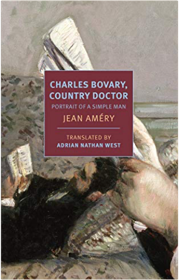 Jean Améry undertakes one of the most unusual projects in twentieth-century literature: a novel-essay devoted to salvaging the poor bungler Charles Bovary from the depredations of his creator, Gustave Flaubert. As a once-promising novelist reduced to hack journalism for two decades after the Second World War, Améry had a particular sympathy for failure, and Charles Bovary, Country Doctor is his phenomenology of the loser, blending fiction and philosophy to assert the moral claims of the most famous, most risible cuckold in all of Western literature. Charles tells his side, Améry vindicates Flaubert’s hated bourgeoisie, and in the end, the Master himself winds up in the docket, forced to account for the implausibility of his own vaunted realism. At the same time, in Charles’s words, Améry offers a moving paean to the majesty of Emma Bovary herself, and to the supreme value of love. The Alteration 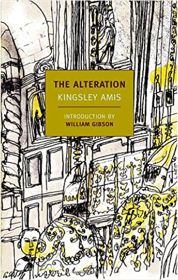 How Hubert realizes what lies in store for him and how he deals with the whirlpool of piety, menace, terror, and passion that he soon finds himself in are the subject of a classic piece of counterfactual fiction equal to Philip K. Dick’s The Man in the High Castle. The Alteration won the John W. Campbell Memorial Award for best science-fiction novel in 1976. Dear Illusion: Collected Stories 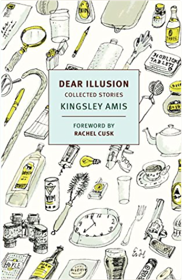 Samskara: A Rite for a Dead Man 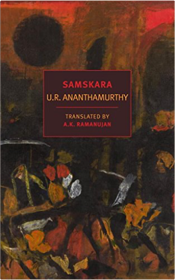 Praneshacharyah finds himself unable to provide the answer, though an answer is urgently needed since as he wonders and the villagers wait and the body festers, more and more people are falling sick and dying. But when Praneshacharyah goes to the temple to seek a sign from God, he discovers something else entirely—unless that something else is also God. Samskara is a tale of existential suspense, a life-and-death encounter between the sacred and the profane, the pure and the impure, the ascetic and the erotic. Omer Pasha Latas: Marshal to the Sultan 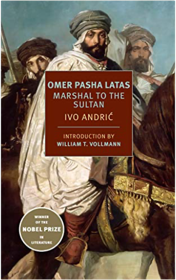 Omer Pasha Latas is set in nineteenth-century Sarajevo, where Muslims and Christians live in uneasy proximity while entertaining a common resentment of faraway Ottoman rule. Omer is the seraskier, commander in chief of the Sultan’s armies, and as the book begins he arrives from Istanbul, dispatched to bring Sarajevo’s landowners to heel, a task that he accomplishes with his usual ferocity and efficiency. And yet the seraskier’s expedition to Bosnia is a time of reckoning for him as well: he was born in the Balkans, a Serb and a subject of the Austro-Hungarian Empire, a bright boy who escaped his father’s financial disgrace by running away and converting to Islam. Now, at the height of his power, he heads an army of misfits, adventurers, and outcasts from across Europe and Asia, and yet wherever he goes he remains a stranger. Ivo Andrić, who won the Nobel Prize in 1961, is a spellbinding storyteller and a magnificent stylist, and here, in his final novel, he surrounds his enigmatic central figure with many vivid and fascinating minor characters, lost souls and hopeless dreamers all, in a world that is slowly sliding towards disaster. Omer Pasha Latas combines the leisurely melancholy of Joseph Roth’s The Radetzky March with the stark fatalism of an old ballad. Eve's Hollywood 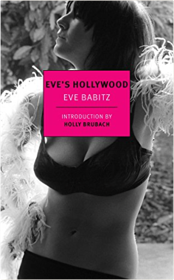 Journalist, party girl, bookworm, artist, muse: by the time she’d hit thirty, Eve Babitz had played all of these roles. Immortalized as the nude beauty facing down Duchamp and as one of Ed Ruscha’s Five 1965 Girlfriends, Babitz’s first book showed her to be a razor-sharp writer with tales of her own. Eve’s Hollywood is an album of vivid snapshots of Southern California’s haute bohemians, of outrageously beautiful high-school ingenues and enviably tattooed Chicanas, of rock stars sleeping it off at the Chateau Marmont. And though Babitz’s prose might appear careening, she’s in control as she takes us on a ride through an LA of perpetual delight, from a joint serving the perfect taquito, to the corner of La Brea and Sunset where we make eye contact with a roller-skating hooker, to the Watts Towers. This “daughter of the wasteland” is here to show us that her city is no wasteland at all but a glowing landscape of swaying fruit trees and blooming bougainvillea, buffeted by earthquakes and the Santa Ana winds—and every bit as seductive as she is. I Used to Be Charming: The Rest of Eve Babitz 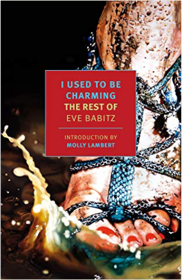 With Eve’s Hollywood Eve Babitz lit up the scene in 1974. The books that followed, among them Slow Days, Fast Company and Sex and Rage, have seduced generations of readers with their unfailing wit and impossible glamour. What is less well known is that Babitz was a working journalist for the better part of three decades, writing for the likes of Rolling Stone, Vogue, and Esquire, as well as for off-the-beaten-path periodicals like Wet: The Magazine of Gourmet Bathing and Francis Ford Coppola’s short-lived City. Whether profiling Hollywood darlings, getting to the bottom of health crazes like yoga and acupuncture, remembering friends and lovers from her days hobnobbing with rock stars at the Troubadour and art stars at the Ferus Gallery, or writing about her beloved, misunderstood hometown, Los Angeles, Babitz approaches every assignment with an energy and verve that is all her own. I Used to Be Charming gathers nearly fifty pieces written between 1975 and 1997, including the full text of Babitz’s wry book-length investigation into the pioneering lifestyle brand Fiorucci. The title essay, published here for the first time, recounts the accident that came close to killing her in 1996; it reveals an uncharacteristically vulnerable yet never less than utterly charming Babitz. Slow Days, Fast Company: The World, The Flesh, and L.A. 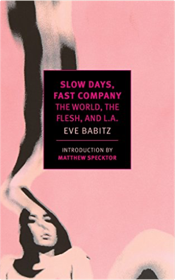 The Human Comedy: Selected Stories 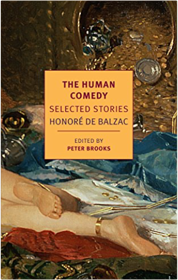 Characters from every corner of society and all walks of life—lords and ladies, businessmen and military men, poor clerks, unforgiving moneylenders, aspiring politicians, artists, actresses, swindlers, misers, parasites, sexual adventurers, crackpots, and more—move through the pages of The Human Comedy, Balzac’s multivolume magnum opus, an interlinked chronicle of modernity in all its splendor and squalor. The Human Comedy includes the great roomy novels that have exercised such a sway over Balzac’s many literary inheritors, from Dostoyevsky and Henry James to Marcel Proust; it also contains an array of short fictions in which Balzac is at his most concentrated and forceful. Nine of these, all newly translated, appear in this volume, and together they provide an unequaled overview of a great writer’s obsessions and art. Here are “The Duchesse de Langeais,” “A Passion in the Desert,” and “Sarrasine”; tales of madness, illicit passion, ill-gotten gains, and crime. What unifies them, Peter Brooks points out in his introduction, is an incomparable storyteller’s fascination with the power of storytelling, while throughout we also detect what Proust so admired: the “mysterious circulation of blood and desire.” The Lily in the Valley 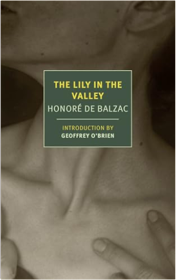 The Unknown Masterpiece 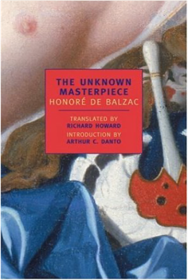 Changing My Mind 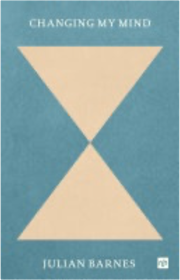 The Silentiary 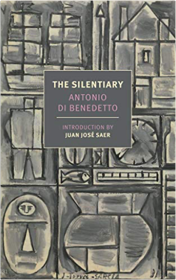 Zama 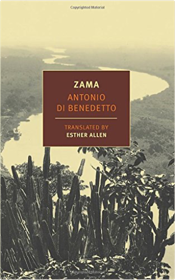 First published in 1956, Zama is now universally recognized as one of the masterpieces of modern Argentine and Spanish-language literature. Written in a style that is both precise and sumptuous, weirdly archaic and powerfully novel, Zama takes place in the last decade of the eighteenth century and describes the solitary, suspended existence of Don Diego de Zama, a highly placed servant of the Spanish crown who has been posted to Asunción, the capital of remote Paraguay. There, eaten up by pride, lust, petty grudges, and paranoid fantasies, he does as little as he possibly can while plotting his eventual transfer to Buenos Aires, where everything about his hopeless existence will, he is confident, be miraculously transformed and made good. Don Diego’s slow, nightmarish slide into the abyss is not just a tale of one man’s perdition but an exploration of existential, and very American, loneliness. Zama, with its stark dreamlike prose and spare imagery, is at once dense and unforeseen, terse and fateful, marked throughout by a haunting movement between sentences, paragraphs, and sections, so that every word seems to emerge from an ocean of things left unsaid. The philosophical depths of this great book spring directly from its dazzling prose. The Storyteller Essays 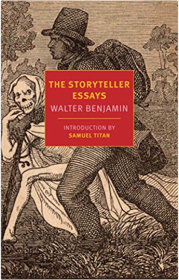 “The Storyteller” is one of Walter Benjamin’s most important essays, a beautiful and suggestive meditation on the relation between narrative form, social life, and individual existence—and the product of at least a decade’s work. What might be called the story of The Storyteller Essays starts in 1926, with a piece Benjamin wrote about the German romantic Johann Peter Hebel. It continues in a series of short essays, book reviews, short stories, parables, and even radio shows for children. This collection brings them all together to give readers a new appreciation of how Benjamin’s thinking changed and ripened over time, while including several key readings of his own—texts by his contemporaries Ernst Bloch and Georg Lukács; by Paul Valéry; and by Herodotus and Montaigne. Finally, to bring things around, there are three short stories by “the incomparable Hebel” with whom the whole intellectual adventure began. Sheppard Lee, Written by Himself 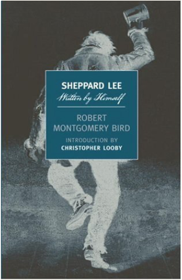 Sheppard Lee, Written By Himself is a work of dark satire from the early years of the American Republic. Published as an autobiography and praised by Edgar Allan Poe, this is the story of a young idler who goes in search of buried treasure and finds instead the power to transfer his soul into other men's bodies. What follows is one increasingly practiced body snatcher's picaresque journey through early American pursuits of happiness, as each new form Sheppard Lee assumes disappoints him anew while making him want more and more. When Lee's metempsychosis draws him into the marriage market, the money market, and the slave market, Bird's fable of American upward mobility takes a more sinister turn. Lee learns that everything in America, even virtue and vice, are interchangeable; everything is an object and has its price. Looking forward to Melville's The Confidence-Man and beyond that to William Burroughs’s Naked Lunch, this strange and compelling story is a penetrating critique of American life and values as well as a crucial addition to the canon of American literature. Journey Into the Mind's Eye: Fragments of an Autobiography 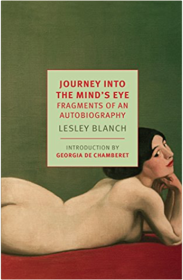 “My book is not altogether autobiography, nor altogether travel or history either. You will just have to invent a new category,” Lesley Blanch wrote about Journey into the Mind’s Eye, a book that remains as singularly adventurous and intoxicating now as when it first came out in 1968. Russia seized Lesley Blanch when she was still a child. A mysterious traveler—swathed in Siberian furs, bearing Fabergé eggs and icons as gifts along with Russian fairy tales and fairy tales of Russia—came to visit her parents and left her starry-eyed. Years later the same man returned to sweep her off her feet. Her love affair with the Traveller, as she calls him, transformed her life and fueled an abiding fascination with Russia and Russian culture, one that would lead her to dingy apartments reeking of cabbage soup and piroshki on the outskirts of Paris in the 1960s, and to Siberia and beyond. Malicroix 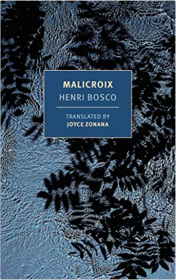 Nadja 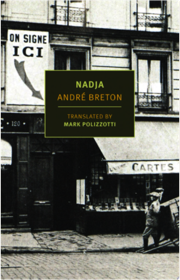 Religio Medici and Urne-Buriall 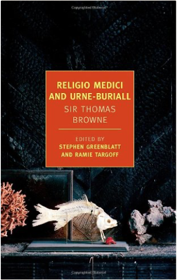 Here this baroque master’s two most enduring and admired works, Religio Medici and Urne-Buriall, appear in a new edition that has been annotated and introduced by the distinguished scholars Ramie Targoff and Stephen Greenblatt (author of the best-selling Will in the World and the National Book Award–winning The Swerve). In Religio Medici Browne mulls over the relation between his medical profession and his profession of the Christian faith, pondering the respective claims of science and religion, questions that are still very much alive today. The discovery of an ancient burial site in an English field prompted Browne to write Urne-Buriall, which is both an early anthropological examination of different practices of interment and a profound meditation on mortality. Its grave and exquisite music has resounded for generations. Free Day 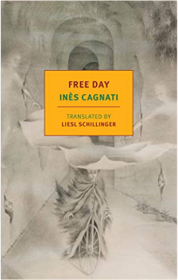 In the marshy, misty countryside of southwestern France, fourteen-year-old Galla rides her battered bicycle from the private Catholic high school she attends on scholarship to the rocky, barren farm where her family lives. It’s a journey she makes every two weeks, forty miles round trip, traveling between opposite poles of ambition and guilt, school and home. Galla’s loving, overwhelmed, incompetent mother doesn’t want her to go to school; she wants her to stay at home, where Galla can look after her neglected little sisters, defuse her father’s brutal rages, and help with the chores. What does this dutiful daughter owe her family, and what does she owe herself? In Inès Cagnati’s haunting, emotionally and visually powerful novel Free Day, which won France’s Prix Roger Nimier in 1973, Galla makes an extra journey on a frigid winter Saturday to surprise her mother. As she anticipates their reunion, stopping often to pry caked, gelid mud off her bicycle wheels, she mentally retraces the crooked path of her family’s past and the more recent map of her school life as a poor but proud student. Galla’s rich, dense interior monologue blends with the landscape around her, building a powerful portrait of a girl who yearns to liberate herself from the circumstances that confine her, without losing their ties to her heart. The Life and Opinions of Zacharias Lichter 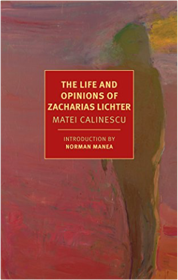 An NYRB Classics Original Ugly, unkempt, a haunter of low dives who begs for a living and lives on the street, Zacharias Lichter exists for all that in a state of unlikely rapture. After being engulfed by a divine flame as a teenager, Zacharias has devoted his days to doing nothing at all—apart, that is, from composing the odd poem he immediately throws away and consorting with a handful of stray friends: Poldy, for example, the catatonic alcoholic whom Zacharias considers a brilliant philosopher, or another more vigorous barfly whose prolific output of pornographic verses has won him the nickname of the Poet. Zacharias is a kind of holy fool, but one whose foolery calls in question both social convention and conventional wisdom. He is as much skeptic as ecstatic, affirming above all the truth of perplexity. This of course is what makes him a permanent outrage to the powers that be, be they reactionary or revolutionary, and to all other self-appointed champions of morality who are blind to their own absurdity. The only thing that scares Zacharias is that all-purpose servant of conformity, the psychiatrist. This Romanian classic, originally published under the brutally dictatorial Ceauşescu regime, whose censors initially let it pass because they couldn’t make head or tail of it, is as delicious and telling an assault on the modern world order as ever. Down Below 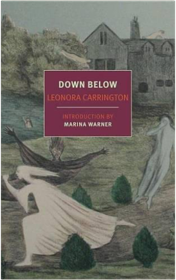 In 1937 Leonora Carrington—later to become one of the twentieth century’s great painters of the weird, the alarming, and the wild—was a nineteen-year-old art student in London, beautiful and unapologetically rebellious. At a dinner party, she met the artist Max Ernst. The two fell in love and soon departed to live and paint together in a farmhouse in Provence. In 1940, the invading German army arrested Ernst and sent him to a concentration camp. Carrington suffered a psychotic break. She wept for hours. Her stomach became “the mirror of the earth”—of all worlds in a hostile universe—and she tried to purify the evil by compulsively vomiting. As the Germans neared the south of France, a friend persuaded Carrington to flee to Spain. Facing the approach “of robots, of thoughtless, fleshless beings,” she packed a suitcase that bore on a brass plate the word Revelation. This was only the beginning of a journey into madness that was to end with Carrington confined in a mental institution, overwhelmed not only by her own terrible imaginings but by her doctor’s sadistic course of treatment. In Down Below she describes her ordeal—in which the agonizing and the marvelous were equally combined—with a startling, almost impersonal precision and without a trace of self-pity. Like Daniel Paul Schreber’s Memoirs of My Nervous Illness, Down Below brings the hallucinatory logic of madness home. The Hearing Trumpet 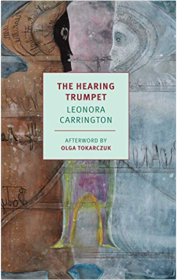 The Stone Door 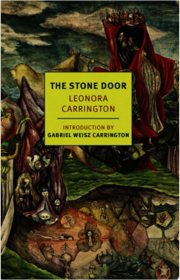 The Invention of Morel 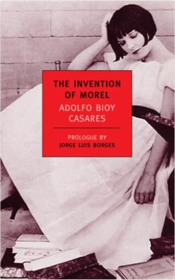 Naked Earth 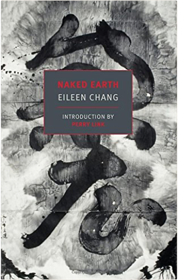 Set in the early years of Mao’s China, Naked Earth is the story of two earnest young people confronting the grim realities of revolutionary change. Liu Ch’üan and Su Nan meet in the countryside after volunteering to assist in the new land reform program. Eager to build a more just society, they are puzzled and shocked by the brutality, barely disguised corruption, and ruthless careerism they discover, but then quickly silenced by the barrage of propaganda and public criticism that is directed at anyone who appears to doubt a righteous cause. Joined together by the secret of their common dismay, they remain in touch when Liu departs to work on a newspaper in Peking, where Su Nan eventually also moves. Something like love begins to grow between them—but then a new round of purges sweeps through the revolutionary ranks. One of the greatest and most loved of modern Chinese writers, Eileen Chang illuminates the dark corners of the human existence with a style of disorienting beauty. Naked Earth, unavailable in English for more than fifty years, is a harrowing tale of perverted ideals, damaged souls, deepest loneliness, and terror. A Strange and Sublime Address 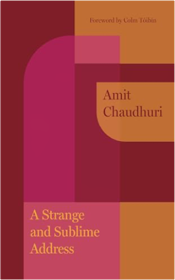 The Simple Past 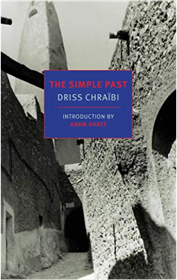 Generations: A Memoir 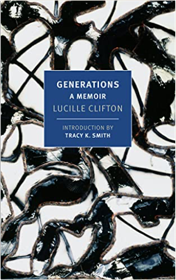 Proud Beggars 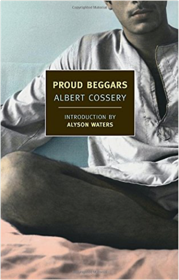 Chief among Cossery’s proud beggars is Gohar, a former professor turned whorehouse accountant, hashish aficionado, and street philosopher. Such is his native charm that he has accumulated a small coterie that includes Yeghen, a rhapsodic poet and drug dealer, and El Kordi, an ineffectual clerk and would-be revolutionary who dreams of rescuing a consumptive prostitute. The police investigator Nour El Dine, harboring a dark secret of his own, suspects all three of the murder but finds himself captivated by their warm good humor. How is it that they live amid degrading poverty, yet possess a joie de vivre that even the most assiduous forces of state cannot suppress? Do they, despite their rejection of social norms and all ambition, hold the secret of contentment? And so this short novel, considered one of Cossery’s masterpieces, is at once biting social commentary, police procedural, and a mischievous delight in its own right. The Enormous Room 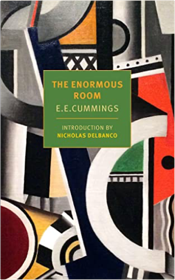 Lost Time: Lectures on Proust in a Soviet Prison Camp 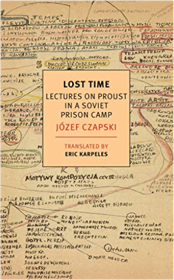 During the Second World War, as a prisoner of war in a Soviet camp, and with nothing but memory to go on, the Polish artist and soldier Józef Czapski brought Marcel Proust’s In Search of Lost Time to life for an audience of prison inmates. In a series of lectures, Czapski described the arc and import of Proust’s masterpiece, sketched major and minor characters in striking detail, and movingly evoked the work’s originality, depth, and beauty. Eric Karpeles has translated this brilliant and altogether unparalleled feat of the critical imagination into English for the first time, and in a thoughtful introduction he brings out how, in reckoning with Proust’s great meditation on memory, Czapski helped his fellow officers to remember that there was a world apart from the world of the camp. Proust had staked the art of the novelist against the losses of a lifetime and the imminence of death. Recalling that triumphant wager, unfolding, like Sheherazade, the intricacies of Proust’s world night after night, Czapski showed to men at the end of their tether that the past remained present and there was a future in which to hope. Essayism: On Form, Feeling, and Nonfiction 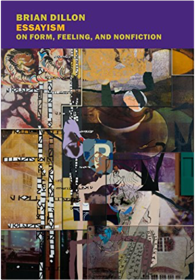 Berlin Alexanderplatz 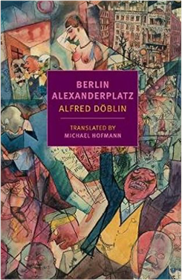 Berlin Alexanderplatz, the great novel of Berlin and the doomed Weimar Republic, is one of the great books of the twentieth century, gruesome, farcical, and appalling, word drunk, pitchdark. In Michael Hofmann's extraordinary new translation, Alfred Döblin's masterpiece lives in English for the first time. As Döblin writes in the opening pages: The subject of this book is the life of the former cement worker and haulier Franz Biberkopf in Berlin. As our story begins, he has just been released from prison, where he did time for some stupid stuff; now he is back in Berlin, determined to go straight. To begin with, he succeeds. But then, though doing all right for himself financially, he gets involved in a set-to with an unpredictable external agency that looks an awful lot like fate. Three times the force attacks him and disrupts his scheme. The first time it comes at him with dishonesty and deception. Our man is able to get to his feet, he is still good to stand. Then it strikes him a low blow. He has trouble getting up from that, he is almost counted out. And finally it hits him with monstrous and extreme violence. Bright Magic: Stories 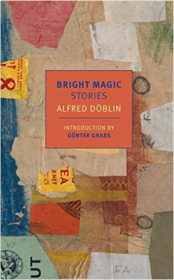 Bright Magic includes all of Döblin’s first book, The Murder of a Buttercup, a work of savage brilliance and a landmark of literary expressionism, as well as two longer stories composed in the 1940s, when he lived in exile in Southern California. The early collection is full of mind-bending and sexually charged narratives, from the dizzying descent into madness that has made the title story one of the most anthologized of German stories to “She Who Helped,” where mortality roams the streets of nineteenth-century Manhattan with a white borzoi and a quiet smile, and “The Ballerina and the Body,” which describes a terrible duel to the death. Of the two later stories, “Materialism, A Fable,” in which news of humanity’s soulless doctrines reaches the animals, elements, and the molecules themselves, is especially delightful. Shakespeare 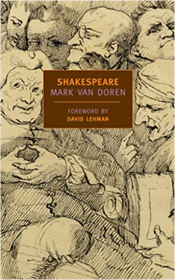 The World as I Found It 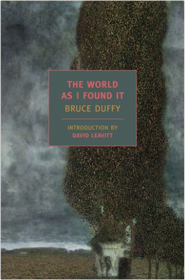 The Dud Avocado 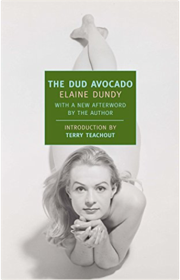 “I had to tell someone how much I enjoyed The Dud Avocado. It made me laugh, scream, and guffaw (which, incidentally, is a great name for a law firm).” –Groucho Marx "[The Dud Avocado] is one of the best novels about growing up fast..." -The Guardian Command Performance 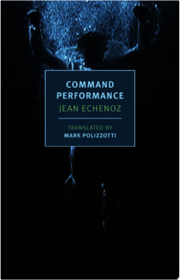 Novels in Three Lines 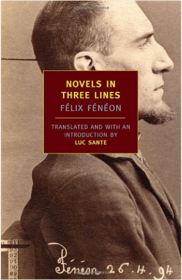 Novels in Three Lines collects more than a thousand items that appeared anonymously in the French newspaper Le Matin in 1906—true stories of murder, mayhem, and everyday life presented with a ruthless economy that provokes laughter even as it shocks. This extraordinary trove, undiscovered until the 1940s and here translated for the first time into English, is the work of the mysterious Félix Fénéon. Dandy, anarchist, and critic of genius, the discoverer of Georges Seurat and the first French publisher of James Joyce, Fénéon carefully maintained his own anonymity, toiling for years as an obscure clerk in the French War Department. Novels in Three Lines is his secret chef-d’oeuvre, a work of strange and singular art that brings back the long-ago year of 1906 with the haunting immediacy of a photograph while looking forward to such disparate works as Walter Benjamin’s Arcades Project and the Death and Disaster series of Andy Warhol. The Violins of Saint-Jacques 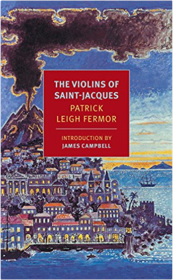 An NYRB Classics Original Patrick Leigh Fermor’s only novel displays the same lustrous way with words as his beloved travel trilogy (A Time of Gifts, Between the Woods and the Water, and The Broken Road), the memoir of his youthful walk from the Hook of Holland to Constantinople. This slim book starts with the meeting of an English traveler and an enigmatic elderly Frenchwoman on an Aegean island. He is captivated by her painting of a busy Caribbean port in the shadow of a volcano, which leads her to tell him the story of her childhood in that town back at the beginning of the twentieth century. The tale she unfolds, set in the tropical luxury of the island of Saint-Jacques, is one of romantic intrigue and decadence involving the descendants of slaves and a fading French aristocracy. Then, on the night of the annual Mardi Gras ball, a whole world comes to a catastrophic and haunting end. Unknown Masterpieces: Writers Rediscover Literature's Hidden Classics 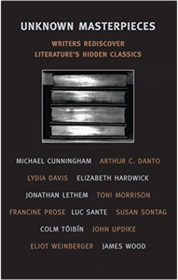 Lucid, polished, provocative, inspiring, these essays are models of critical appreciation, offering personal, impassioned, thoughtful responses to a wide range of wonderful books. Unknown Masterpieces is a treat for all lovers of great writing and a useful and stimulating guidebook for readers eager to venture off literature's beaten tracks. Eliot Weinberger on Hindoo Holiday by J.R. Ackerley Arthur C. Danto on The Unknown Masterpiece by Honoré de Balzac John Updike on Seven Men by Max Beerbohm Jonathan Lethem on On the Yard by Malcolm Braly Toni Morrison on The Radiance of the King by Camara Laye Colm Tóibín on The Go-Between by L.P. Hartley Francine Prose on A High Wind in Jamaica by Richard Hughes Susan Sontag on Letters: Summer 1926 by Boris Pasternak, Marina Tsvetayeva, and Rainer Maria Rilke Luc Sante on Classic Crimes by William Roughead James Wood on The Golovlyov Family by Shchedrin Elizabeth Hardwick on The Unpossessed by Tess Slesinger Lydia Davis on The Life of Henry Brulard by Stendhal Michael Cunningham on The Pilgrim Hawk by Glenway Wescott Totempole 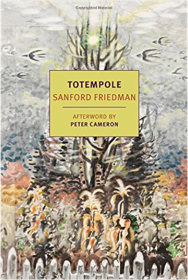 J R 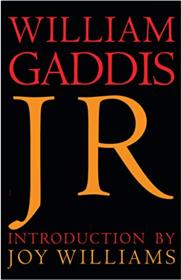 In the Heart of the Heart of the Country: And Other Stories 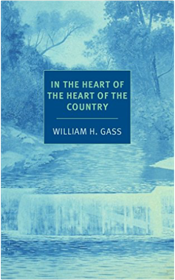 On Being Blue: A Philosophical Inquiry 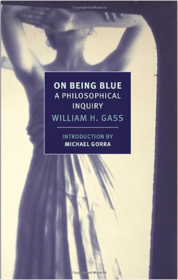 Gass writes: Of the colors, blue and green have the greatest emotional range. Sad reds and melancholy yellows are difficult to turn up. Among the ancient elements, blue occurs everywhere: in ice and water, in the flame as purely as in the flower, overhead and inside caves, covering fruit and oozing out of clay. Although green enlivens the earth and mixes in the ocean, and we find it, copperish, in fire; green air, green skies, are rare. Gray and brown are widely distributed, but there are no joyful swatches of either, or any of exuberant black, sullen pink, or acquiescent orange. Blue is therefore most suitable as the color of interior life. Whether slick light sharp high bright thin quick sour new and cool or low deep sweet dark soft slow smooth heavy old and warm: blue moves easily among them all, and all profoundly qualify our states of feeling. The Criminal Child: Selected Essays 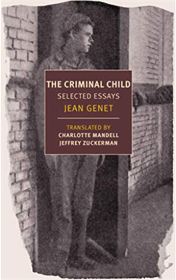 Life with Picasso 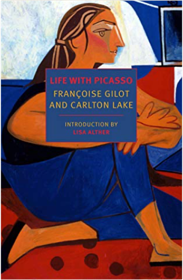 Françoise Gilot was in her early twenties when she met the sixty-one-year-old Pablo Picasso in 1943. Brought up in a well-to-do upper-middle-class family, who had sent her to Cambridge and the Sorbonne and hoped that she would go into law, the young woman defied their wishes and set her sights on being an artist. Her introduction to Picasso led to a friendship, a love affair, and a relationship of ten years, during which Gilot gave birth to Picasso’s two children, Paloma and Claude. Gilot was one of Picasso’s muses; she was also very much her own woman, determined to make herself into the remarkable painter she did indeed become. Life with Picasso is an indispensable record of his thinking about art, as well as an often very funny account of his relationships with other artists and with dealers and hangers-on. It is also about Françoise Gilot. This is a brilliant self-portrait of a young woman of enormous talent and exacting intelligence figuring out who she wants to be. Family Lexicon 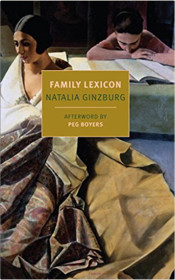 An Italian family, sizable, with its routines and rituals, crazes, pet phrases, and stories, doubtful, comical, indispensable, comes to life in the pages of Natalia Ginzburg’s Family Lexicon. Giuseppe Levi, the father, is a scientist, consumed by his work and a mania for hiking—when he isn’t provoked into angry remonstration by someone misspeaking or misbehaving or wearing the wrong thing. Giuseppe is Jewish, married to Lidia, a Catholic, though neither is religious; they live in the industrial city of Turin where, as the years pass, their children find ways of their own to medicine, marriage, literature, politics. It is all very ordinary, except that the background to the story is Mussolini’s Italy in its steady downward descent to race law and world war. The Levis are, among other things, unshakeable anti-fascists. That will complicate their lives. Family Lexicon is about a family and language—and about storytelling not only as a form of survival but also as an instrument of deception and domination. The book takes the shape of a novel, yet everything is true. “Every time that I have found myself inventing something in accordance with my old habits as a novelist, I have felt impelled at once to destroy [it],” Ginzburg tells us at the start. “The places, events, and people are all real.” Valentino and Sagittarius 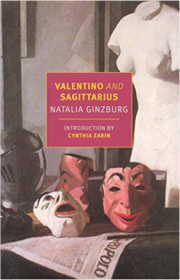 The Open Road 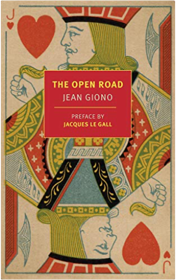 Margery Kempe 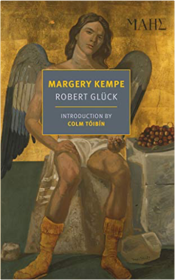 Balcony in the Forest 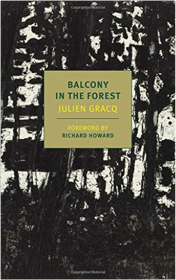 Back 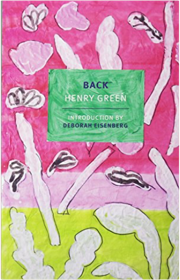 Blindness 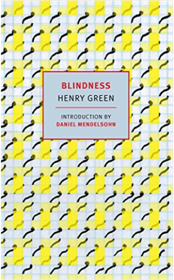 Caught 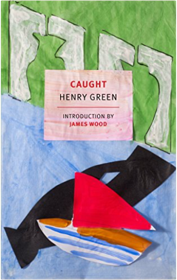 Doting 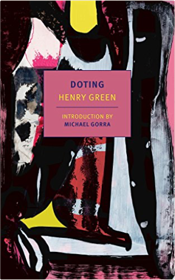 Living 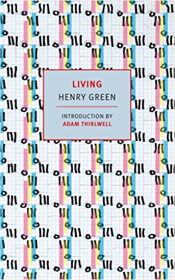 Living is a book about life in a factory town and the operations of a factory, from the workers on the floor to the boss in his office. The town is Birmingham and the factory is an iron foundry, like the one that Henry Green worked in for some time in the 1920s after dropping out of Oxford, and the stories—courtships, layoffs, getting dinner on the table, going to the pub, death—are all the ordinary stuff of life. The style, however, is pure Henry Green, at once starkly constrained and wildly streaked with the expedients and eccentricities of everyday speech—cliché and innuendo, clashing metaphors, slips of tongue—which is to say it is like nothing else. Epic and antic, Living is a book of exact observation and deep tenderness, the work, in Rosamond Lehmann’s words, of an “amorous and austere voluptuary” whose work continues to transform the novel. Loving 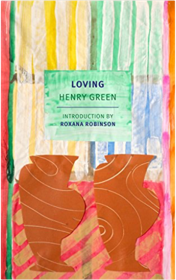 Nothing 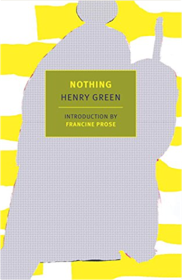 Nothing, like the closely related Doting, is a book that is almost entirely composed in dialogue, since in these late novels nothing so interested Green as how words resist, twist, and expose our intentions; how they fail us, lead us on, make fools of us, and may, in spite of ourselves, even save us, at least for a time. Nothing spills over with the bizarre and delicious comedy and poetry of human incoherence. Party Going 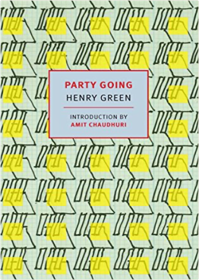 Surviving: Stories, Essays, Interviews 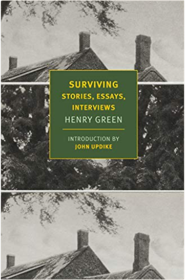 Arabia Felix: The Danish Expedition of 1761-1767 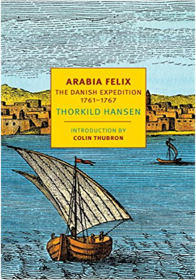 Arabia Felix is the spellbinding true story of a scientific expedition gone disastrously awry. On a winter morning in 1761 six men leave Copenhagen by sea—a botanist, a philologist, an astronomer, a doctor, an artist, and their manservant—an ill-assorted band of men who dislike and distrust one another from the start. These are the members of the Danish expedition to Arabia Felix, as Yemen was then known, the first organized foray into a corner of the world unknown to Europeans. The expedition made its way to Turkey and Egypt, by which time its members were already actively seeking to undercut and even kill one another, before disappearing into the harsh desert that was their destination. Nearly seven years later a single survivor returned to Denmark to find himself forgotten and all the specimens that had been sent back ruined by neglect. Based on diaries, notebooks, and sketches that lay unread in Danish archives until the twentieth century, Arabia Felix is a tale of intellectual rivalry and a comedy of very bad manners, as well as an utterly absorbing adventure. Arabia Felix includes 33 line drawings and maps. The Collected Essays of Elizabeth Hardwick 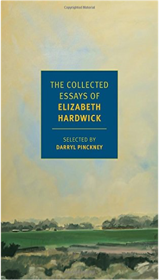 Elizabeth Hardwick wrote during the golden age of the American literary essay. For Hardwick, the essay was an imaginative endeavor, a serious form, criticism worthy of the literature in question. In the essays collected here she covers civil rights demonstrations in the 1960s, describes places where she lived and locations she visited, and writes about the foundations of American literature—Melville, James, Wharton—and the changes in American fiction, though her reading is wide and international. She contemplates writers’ lives—women writers, rebels, Americans abroad—and the literary afterlife of biographies, letters, and diaries. Selected and with an introduction by Darryl Pinckney, the Collected Essays gathers more than fifty essays for a fifty-year retrospective of Hardwick’s work from 1953 to 2003. “For Hardwick,” writes Pinckney, “the poetry and novels of America hold the nation’s history.” Here is an exhilarating chronicle of that history. Seduction and Betrayal: Women and Literature 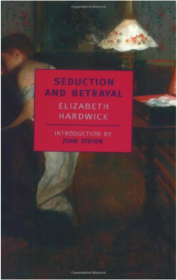 Sleepless Nights 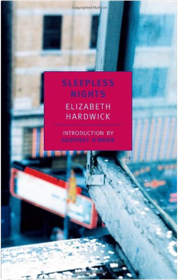 The Go-Between 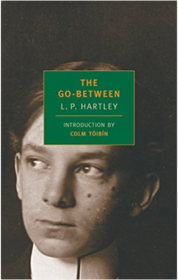 The Farm in the Green Mountains 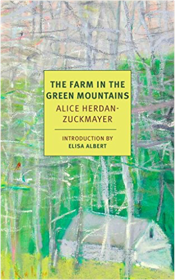 Alice and Carl Zuckmayer lived at the center of Weimarera Berlin. She was a former actor turned medical student, he was a playwright, and their circle of friends included Stefan Zweig, Alma Mahler, and Bertolt Brecht. But then the Nazis took over and Carl’s most recent success, a play satirizing German militarism, impressed them in all the wrong ways. The couple and their two daughters were forced to flee, first to Austria, then to Switzerland, and finally to the United States. Los Angeles didn’t suit them, neither did New York, but a chance stroll in the Vermont woods led them to Backwoods Farm and the eighteenth-century farmhouse where they would spend the next five years. In Europe, the Zuckmayers were accustomed to servants; in Vermont, they found themselves building chicken coops, refereeing fights between fractious ducks, and caring for temperamental water pipes “like babies.” But in spite of the endless work and the brutal, depressing winters, Alice found that in America she had at last discovered her “native land.” This generous, surprising, and witty memoir, a best seller in postwar Germany, has all the charm of an unlikely romantic comedy. Sand 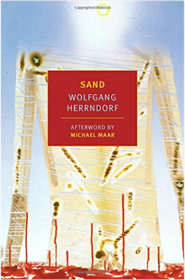 North Africa, 1972. While the world is reeling from the massacre of Israeli athletes at the Munich Olympics, a series of mysterious events is playing out in the Sahara. Four people are murdered in a hippie commune, a suitcase full of money disappears, and a pair of unenthusiastic detectives are assigned to investigate. In the midst of it all, a man with no memory tries to evade his armed pursuers. Who are they? What do they want from him? If he could just recall his own identity he might have a chance of working it out. . . . This darkly sophisticated literary thriller, the last novel Wolfgang Herrndorf completed before his untimely death in 2013, is, in the words of Michael Maar, “the greatest, grisliest, funniest, and wisest novel of the past decade.” Certainly no reader will ever forget it. The Sound of the One Hand: 281 Zen Koans with Answers 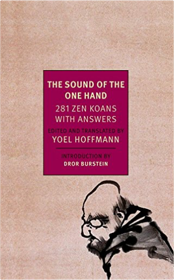 For all that, The Sound of the One Hand opens the door to Zen like no other book. Including koans that go back to the master who first brought the koan teaching method from China to Japan in the eighteenth century, this book offers, in the words of the translator, editor, and Zen initiate Yoel Hoffmann, “the clearest, most detailed, and most correct picture of Zen” that can be found. What we have here is an extraordinary introduction to Zen thought as lived thought, a treasury of problems, paradoxes, and performance that will appeal to artists, writers, and philosophers as well as Buddhists and students of religion. In a Lonely Place 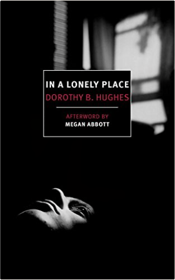 Los Angeles in the late 1940s is a city of promise and prosperity, but not for former fighter pilot Dix Steele. To his mind nothing has come close to matching “that feeling of power and exhilaration and freedom that came with loneness in the sky.” He prowls the foggy city night—bus stops and stretches of darkened beaches and movie houses just emptying out—seeking solitary young women. His funds are running out and his frustrations are growing. Where is the good life he was promised? Why does he always get a raw deal? Then he hooks up with his old Air Corps buddy Brub, now working for the LAPD, who just happens to be on the trail of the strangler who’s been terrorizing the women of the city for months... Written with controlled elegance, Dorothy B. Hughes’s tense novel is at once an early indictment of a truly toxic masculinity and a twisty page-turner with a surprisingly feminist resolution. A classic of golden age noir, In a Lonely Place also inspired Nicholas Ray’s 1950 film of the same name, starring Humphrey Bogart. A High Wind in Jamaica 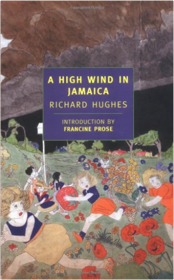 Negrophobia: An Urban Parable 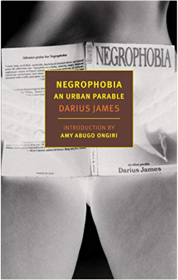 Darius James’s scabrous, unapologetically raunchy, truly hilarious, and deeply scary Negrophobia is a wild-eyed reckoning with the mutating insanity of American racism. A screenplay for the mind, a performance on the page, a work of poetry, a mad mix of genres and styles, a novel in the tradition of William S. Burroughs and Ishmael Reed that is like no other novel, Negrophobia begins with the blonde bombshell Bubbles Brazil succumbing to a voodoo spell and entering the inner darkness of her own shiny being. Here crackheads parade in the guise of Muppets, Muslims beat conga drums, Negroes have numbers for names, and H. Rap Remus demands the total and instantaneous extermination of the white race through spontaneous combustion. By the end of it all, after going on a weird trip for the ages, Bubbles herself is strangely transformed. Fair Play 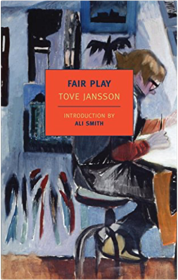 Winner of the 2009 Bernard Shaw Prize for Translation Fair Play is the type of love story that is rarely told, a revelatory depiction of contentment, hard-won and exhilarating. Mari is a writer and Jonna is an artist, and they live at opposite ends of a big apartment building, their studios connected by a long attic passageway. They have argued, worked, and laughed together for decades. Yet they’ve never really stopped taking each other by surprise. Fair Play shows us Mari and Jona’s intertwined lives as they watch Fassbinder films and Westerns, critique each other’s work, spend time on a solitary island (recognizable to readers of Jansson’s The Summer Book), travel through the American Southwest, and turn life into nothing less than art. The True Deceiver (New York Review Books (Paperback)) 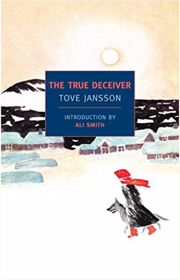 Winner of the Best Translated Book Award Deception—the lies we tell ourselves and the lies we tell others—is the subject of this, Tove Jansson’s most unnerving and unpredictable novel. Here Jansson takes a darker look at the subjects that animate the best of her work, from her sensitive tale of island life, The Summer Book, to her famous Moomin stories: solitude and community, art and life, love and hate. Snow has been falling on the village all winter long. It covers windows and piles up in front of doors. The sun rises late and sets early, and even during the day there is little to do but trade tales. This year everybody’s talking about Katri Kling and Anna Aemelin. Katri is a yellow-eyed outcast who lives with her simpleminded brother and a dog she refuses to name. She has no use for the white lies that smooth social intercourse, and she can see straight to the core of any problem. Anna, an elderly children’s book illustrator, appears to be Katri’s opposite: a respected member of the village, if an aloof one. Anna lives in a large empty house, venturing out in the spring to paint exquisitely detailed forest scenes. But Anna has something Katri wants, and to get it Katri will take control of Anna’s life and livelihood. By the time spring arrives, the two women are caught in a conflict of ideals that threatens to strip them of their most cherished illusions. The Woman Who Borrowed Memories: Selected Stories 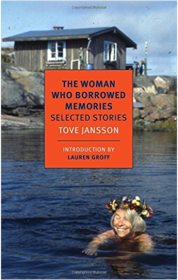 Tove Jansson was a master of brevity, unfolding worlds at a touch. Her art flourished in small settings, as can be seen in her bestselling novel The Summer Book and in her internationally celebrated cartoon strips and books about the Moomins. It is only natural, then, that throughout her life she turned again and again to the short story. The Woman Who Borrowed Memories is the first extensive selection of Jansson’s stories to appear in English. Many of the stories collected here are pure Jansson, touching on island solitude and the dangerous pull of the artistic impulse: in “The Squirrel” the equanimity of the only inhabitant of a remote island is thrown by a visitor, in “The Summer Child” an unlovable boy is marooned along with his lively host family, in “The Cartoonist” an artist takes over a comic strip that has run for decades, and in “The Doll’s House” a man’s hobby threatens to overwhelm his life. Others explore unexpected territory: “Shopping” has a post-apocalyptic setting, “The Locomotive” centers on a railway-obsessed loner with murderous fantasies, and “The Woman Who Borrowed Memories” presents a case of disturbing transference. Unsentimental, yet always humane, Jansson’s stories complement and enlarge our understanding of a singular figure in world literature. The True History of the First Mrs. Meredith and Other Lesser Lives 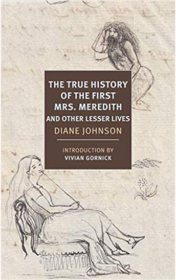 Anniversaries (Boxed Set): From a Year in the Life of Gesine Cresspahl (New York Review Books Classics) 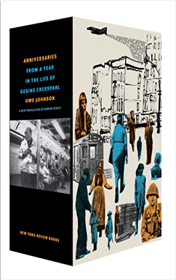 Late in 1967, Uwe Johnson set out to write a book that would take the unusual form of a chapter for every day of the ongoing year. It would be the tale of Gesine Cresspahl, a thirty-four-year-old single mother who is a German émigré to Manhattan’s Upper West Side, and of her ten-year-old daughter, Marie—a story of work and school, of friends and lovers and the countless small encounters with neighbors and strangers that make up big-city life. An everyday tale, but also a tale of the events of the day, as gleaned by Gesine from The New York Times: Johnson could hardly foresee the convulsions of 1968, but some of the news—the racial unrest roiling America, the escalating war in Vietnam—was sure to be news for some time yet to come. Finally, it would be a tale told by Gesine to Marie about Gesine’s childhood in a small north German town, of her independent and enterprising father, of her troubled mother, of Nazi Germany (Gesine was born the year Hitler came to power) and World War II and Soviet retribution and the grimly regulated realities of Communist East Germany. An ambitious historical novel as well as a wonderfully observed New York novel, Anniversaries would take in the unsettled world of the present along with the twentieth century’s disastrous past, while vividly depicting the struggle of a loving, though hardly uncomplicated mother and a bright, indomitably curious girl to understand and care for each other and to shape a human world. Gesine and Marie are among the most memorable and engaging characters in literature, and Anniversaries, at once monumental and intimate, sweeping and full of incident, stylistically adventurous and endlessly absorbing, is quite simply one of the great books of our time. In Parenthesis 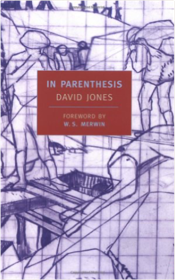 Good Behaviour 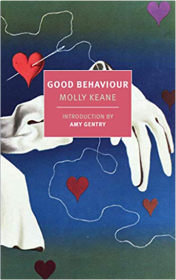 The World I Live In 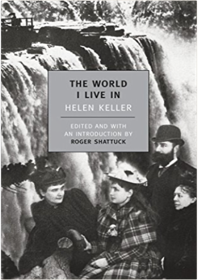 All for Nothing 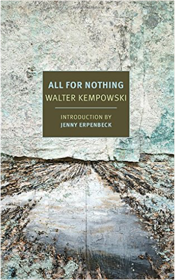 In East Prussia, January 1945, the German forces are in retreat and the Red Army is approaching. The von Globig family's manor house, the Georgenhof, is falling into disrepair. Auntie runs the estate as best she can since Eberhard von Globig, a special officer in the German army, went to war, leaving behind his beautiful but vague wife, Katharina, and her bookish twelve-year-old son, Peter. As the road fills with Germans fleeing the occupied territories, the Georgenhof begins to receive strange visitors—a Nazi violinist, a dissident painter, a Baltic baron, even a Jewish refugee. Yet in the main, life continues as banal, wondrous, and complicit as ever for the family, until their caution, their hedged bets, and their denial are answered by the wholly expected events they haven't allowed themselves to imagine. All for Nothing, published in 2006, was the last novel by Walter Kempowski, one of postwar Germany's most acclaimed and popular writers. Marrow and Bone 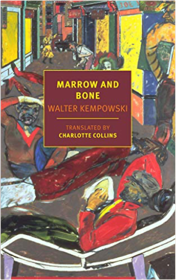 The Secret Commonwealth: Of Elves, Fauns, and Fairies 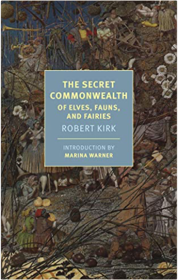 Late in the seventeenth century, Robert Kirk, an Episcopalian minister in the Scottish Highlands, set out to collect his parishioners’ many striking stories about elves, fairies, fauns, doppelgängers, wraiths, and other beings of, in Kirk’s words, “a middle nature betwixt man and angel.” For Kirk these stories constituted strong evidence for the reality of a supernatural world, existing parallel to ours, which, he passionately believed, demanded exploration as much as the New World across the seas. Kirk defended these views in The Secret Commonwealth, an essay that was left in manuscript when he died in 1692. It is a rare and fascinating work, an extraordinary amalgam of science, religion, and folklore, suffused with the spirit of active curiosity and bemused wonder that fills Robert Burton’s Anatomy of Melancholy and the works of Sir Thomas Browne. The Secret Commonwealth is not only a remarkable document in the history of ideas but a study of enchantment that enchants in its own right. First published in 1815 by Sir Walter Scott, then reedited in 1893 by Andrew Lang, with a dedication to Robert Louis Stevenson, The Secret Commonwealth has long been difficult to obtain—available, if at all, only in scholarly editions. This new edition modernizes the spelling and punctuation of Kirk’s little book and features a wide-ranging and illuminating introduction by the critic and historian Marina Warner, who brings out the originality of Kirk’s contribution and reflects on the ongoing life of fairies in the modern mind. Memories of the Future 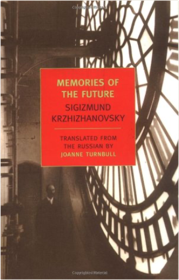 The Return of Munchausen 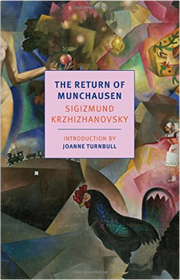 Sigizmund Krzhizhanovsky, the Russian modernist master of the unsettling and the uncanny, also took certain liberties with the mythical baron. In this phantasmagoric roman à clef set in 1920s Berlin, London, and Moscow, Munchausen dauntlessly upholds his old motto “Truth in lies,” while remaining a fierce champion of his own imagination. At the same time, the two-hundred-year-old baron and self-taught philosopher has agreed to return to Russia, Lenin’s Russia, undercover. This reluctant secret agent has come out of retirement to engage with the real world. Unwitting Street 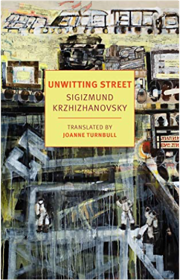 Love Sonnets and Elegies 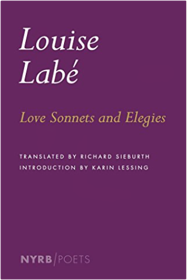 The Professor and the Siren 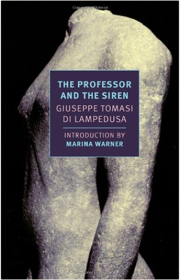 In the last two years of his life, the Sicilian aristocrat Giuseppe Tomasi di Lampedusa wrote not only the internationally celebrated novel The Leopard but also three shorter pieces of fiction, brought together here in a new translation. “The Professor and the Siren,” like The Leopard, meditates on the past and the passage of time, and also on the relationship between erotic love and learning. Professor La Ciura is one of the world’s most distinguished Hellenists; his knowledge, however, came at the cost of a loss that has haunted him for his entire life. This Lampedusa’s final masterpiece, is accompanied here by the parable “Joy and the Law” and “The Blind Kittens,” a story originally conceived as the first chapter of a followup to The Leopard. The Bad Side of Books: Selected Essays of D.H. Lawrence 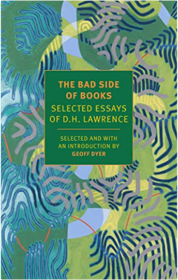 The Radiance of the King 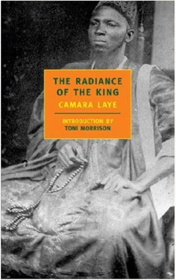 The Radiance of the King 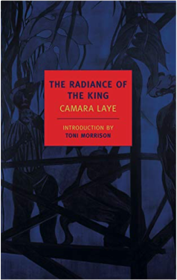 Lady Macbeth of Mtsensk: Selected Stories of Nikolai Leskov 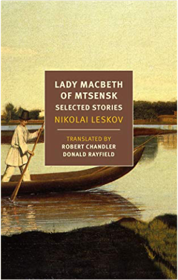 The Hall of Uselessness: Collected Essays 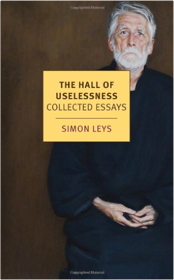 Simon Leys is a Renaissance man for the era of globalization. A distinguished scholar of classical Chinese art and literature and one of the first Westerners to recognize the appalling toll of Mao’s Cultural Revolution, Leys also writes with unfailing intelligence, seriousness, and bite about European art, literature, history, and politics and is an unflinching observer of the way we live now. The Hall of Uselessness is the most extensive collection of Leys’s essays to be published to date. In it, he addresses subjects ranging from the Chinese attitude to the past to the mysteries of Belgium and Belgitude; offers portraits of André Gide and Zhou Enlai; takes on Roland Barthes and Christopher Hitchens; broods on the Cambodian genocide; reflects on the spell of the sea; and writes with keen appreciation about writers as different as Victor Hugo, Evelyn Waugh, and Georges Simenon. Throughout, The Hall of Uselessness is marked with the deep knowledge, skeptical intelligence, and passionate conviction that have made Simon Leys one of the most powerful essayists of our time. Three Summers 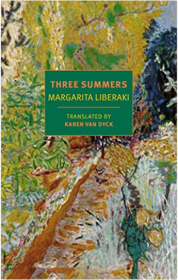 Three Summers is the story of three sisters growing up in the countryside near Athens before the Second World War. Living in a big old house surrounded by a beautiful garden are Maria, the oldest sister, as sexually bold as she is eager to settle down and have a family of her own; beautiful but distant Infanta; and dreamy and rebellious Katerina, through whose eyes the story is mostly observed. Over three summers, the girls share and keep secrets, fall in and out of love, try to figure out their parents and other members of the tribe of adults, take note of the weird ways of friends and neighbors, worry about and wonder who they are. Karen Van Dyck’s translation captures all the light and warmth of this modern Greek classic. The Waste Books 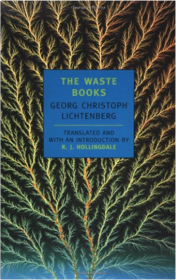 Lichtenberg's Waste Books have been greatly admired by writers as very different as Tolstoy, Einstein, and Andre Breton, while Nietzsche and Wittgenstein acknowledged them as a significant inspiration for their own radical work in philosophy. The record of a brilliant and subtle mind in action, The Waste Books are above all a powerful testament to the necessity, and pleasure, of unfettered thought. In the Freud Archives 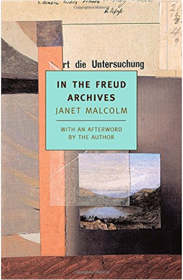 In the Freud Archives tells the story of an unlikely encounter among three men: K. R. Eissler, the venerable doyen of psychoanalysis; Jeffrey Moussaieff Masson, a flamboyant, restless forty-two-year-old Sanskrit scholar turned psychoanalyst turned virulent anti-Freudian; and Peter Swales, a mischievous thirty-five-year-old former assistant to the Rolling Stones and self-taught Freud scholar. At the center of their Oedipal drama are the Sigmund Freud Archives—founded, headed, and jealously guarded by Eissler—whose sealed treasure gleams and beckons to the community of Freud scholarship as if it were the Rhine gold. Janet Malcolm's fascinating book first appeared some twenty years ago, when it was immediately recognized as a rare and remarkable work of nonfiction. A story of infatuation and disappointment, betrayal and revenge, In the Freud Archives is essentially a comedy. But the powerful presence of Freud himself and the harsh bracing air of his ideas about unconscious life hover over the narrative and give it a tragic dimension. Reflections of a Nonpolitical Man 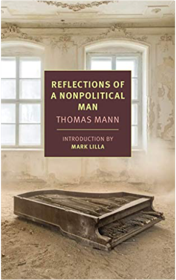 Like Death 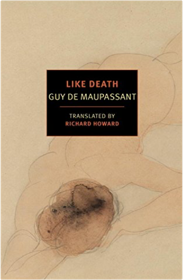 Olivier Bertin is at the height of his career as a painter. After making his name with his Cleopatra, he went on to establish himself as “the chosen painter of the Parisiennes, the most adroit and ingenious artist to reveal their grace, their figures, and their souls.” And though his hair may be white, he remains a handsome, vigorous, and engaging bachelor, a prized guest at every table and salon. Anne, the comtesse de Guilleroy, is a youthful forty, the wife of a busy politician. The painter and the comtesse have been lovers for many years. Anne’s daughter, Annette—the spitting image of her mother in her lovely youth—has finished her schooling and is returning to Paris. Her parents are putting together an excellent match. Everything is as it should be—until the painter and comtesse are each seized by an agonizing suspicion, like death... In its devastating depiction of the treacherous nature of love, Like Death is more than the equal of Swann’s Way. Richard Howard’s new translation brings out all the penetration and poetry of this masterpiece of nineteenth-century fiction. Testing the Current 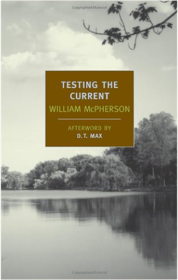 In Testing the Current William McPherson subtly sets off his wide-eyed protagonist’s perspective with mature reflection and wry humor and surrounds him with a cast of vibrant characters, creating a scrupulously observed portrait of a place and time that will shimmer in readers’ minds long after the final page is turned. A Certain Plume 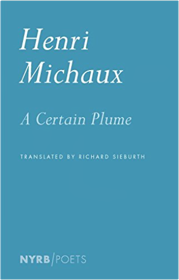 The figure of Plume preoccupied the great Belgian poet Henri Michaux throughout his career. Plume, meaning feather or pen, is a character who drifts from one thing to another, losing shape, taking new forms, at perpetual risk from reality. He is a personification of the imagination as subject to innumerable pratfalls and disgraces, and yet indestructible for all that. In this new bilingual edition, with translations by Richard Sieburth, the entire Plume cycle appears for the first time in English in the form in which Michaux originally published it. Voltaire in Love 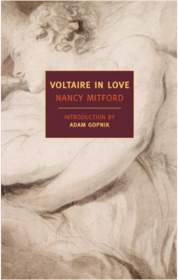 Once and Forever: The Tales of Kenji Miyazawa 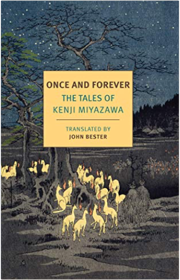 Kenji Miyazawa is one of modern Japan’s most beloved writers, a great poet and a strange and marvelous spinner of tales, whose sly, humorous, enchanting, and enigmatic stories bear a certain resemblance to those of his contemporary Robert Walser. John Bester’s selection and expert translation of Miyazawa’s short fiction reflects its full range from the joyful, innocent “Wildcat and the Acorns,” to the cautionary tale “The Restaurant of Many Orders,” to “The Earthgod and the Fox,” which starts out whimsically before taking a tragic turn. Miyazawa also had a deep connection to Japanese folklore and an intense love of the natural world. In “The Wild Pear,” what seem to be two slight nature sketches succeed in encapsulating some of the cruelty and compensations of life itself. Shakespeare's Montaigne: The Florio Translation of the Essays, A Selection 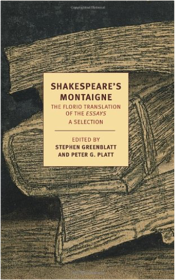 Shakespeare, Nietzsche wrote, was Montaigne’s best reader—a typically brilliant Nietzschean insight, capturing the intimate relationship between Montaigne’s ever-changing record of the self and Shakespeare’s kaleidoscopic register of human character. And there is no doubt that Shakespeare read Montaigne—though how extensively remains a matter of debate—and that the translation he read him in was that of John Florio, a fascinating polymath, man-about-town, and dazzlingly inventive writer himself. Florio’s Montaigne is in fact one of the masterpieces of English prose, with a stylistic range and felicity and passages of deep lingering music that make it comparable to Sir Robert Burton’s Anatomy of Melancholy and the works of Sir Thomas Browne. This new edition of this seminal work, edited by Stephen Greenblatt and Peter G. Platt, features an adroitly modernized text, an essay in which Greenblatt discusses both the resemblances and real tensions between Montaigne’s and Shakespeare’s visions of the world, and Platt’s introduction to the life and times of the extraordinary Florio. Altogether, this book provides a remarkable new experience of not just two but three great writers who ushered in the modern world. Butterfly of Dinard 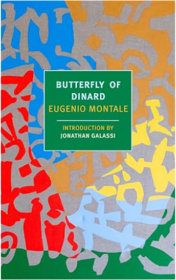 The Communist 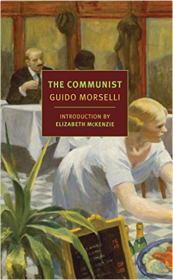 An NYRB Classics Original Walter Ferranini has been born and bred a man of the left. His father was a worker and an anarchist; Walter himself is a Communist. In the 1930s, he left Mussolini’s Italy to fight Franco in Spain. After Franco’s victory, he left Spain for exile in the United States. With the end of the war, he returned to Italy to work as a labor organizer and to build a new revolutionary order. Now, in the late 1950s, Walter is a deputy in the Italian parliament. He is not happy about it. Parliamentary proceedings are too boring for words: the Communist Party seems to be filling up with ward heelers, timeservers, and profiteers. For Walter, the political has always taken precedence over the personal, but now there seems to be no refuge for him anywhere. The puritanical party disapproves of his relationship with Nuccia, a tender, quizzical, deeply intelligent editor who is separated but not divorced, while Walter is worried about his health, haunted by his past, and increasingly troubled by knotty questions of both theory and practice. Walter is, always has been, and always will be a Communist, he has no doubt about that, and yet something has changed. Communism no longer explains the life he is living, the future he hoped for, or, perhaps most troubling of all, the life he has led. Dissipatio H.G.: The Vanishing 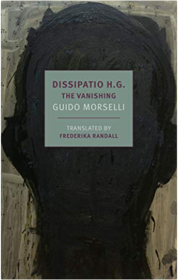 Max Havelaar: Or, the Coffee Auctions of The Dutch Trading Company 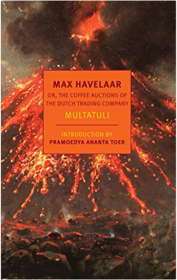 A brilliantly inventive fiction that is also a work of burning political outrage, Max Havelaar tells the story of a renegade Dutch colonial administrator’s ultimately unavailing struggle to end the exploitation of the Indonesian peasantry. Havelaar’s impassioned exposé is framed by the fatuous reflections of an Amsterdam coffee trader, Drystubble, into whose hands it has fallen. Thus a tale of the jungles and villages of Indonesia is interknit with one of the houses and warehouses of bourgeois Amsterdam where the tidy profits from faraway brutality not only accrue but are counted as a sign of God’s grace. Multatuli (meaning “I have suffered greatly”) was the pen name of Eduard Douwes Dekker, and his novel caused a political storm when it came out in Holland. Max Havelaar, however, is as notable for its art as it is for its politics. Layering not only different stories but different ways of writing—including plays, poems, lists, letters, and a wild accumulation of notes—to furious, hilarious, and disconcerting effect, this masterpiece of Dutch literature confronts the fixities of power with the protean and subversive energy of the imagination. Agathe: Or, The Forgotten Sister 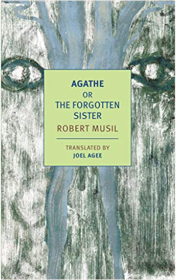 Agathe is the sister of Ulrich, the restless and elusive “man without qualities” at the center of Robert Musil’s great, unfinished novel of the same name. For years Agathe and Ulrich have ignored each other, but when brother and sister find themselves reunited over the bier of their dead father, they are electrified. Each is the other’s spitting image, and Agathe, who has just separated from her husband, is even more defiant and inquiring than Ulrich. Beginning with a series of increasingly intense “holy conversations,” the two gradually enlarge the boundaries of sexuality, sensuality, identity, and understanding in pursuit of a new, true form of being that they are seeking to discover. Robert Musil’s The Man Without Qualities is perhaps the most profoundly exploratory and unsettling masterpiece of twentieth-century fiction. Agathe, or, The Forgotten Sister reveals with new clarity a particular dimension of this multidimensional book—the dimension that meant the most to Musil himself and that inspired some of his most searching writing. The outstanding translator Joel Agee captures the acuity, audacity, and unsettling poetry of a book that is meant to be nothing short of life-changing. Anti-Education: On the Future of Our Educational Institutions 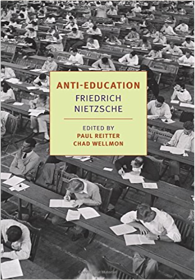 In 1869, at the age of twenty-four, the precociously brilliant Friedrich Nietzsche was appointed to a professorship of classical philology at the University of Basel. He seemed marked for a successful and conventional academic career. Then the philosophy of Schopenhauer and the music of Wagner transformed his ambitions. The genius of such thinkers and makers—the kind of genius that had emerged in ancient Greece—this alone was the touchstone for true understanding. But how was education to serve genius, especially in a modern society marked more and more by an unholy alliance between academic specialization, mass-market journalism, and the militarized state? Something more than sturdy scholarship was called for. A new way of teaching and questioning, a new philosophy . . . What that new way might be was the question Nietzsche broached in five vivid, popular public lectures in Basel in 1872. Anti-Education presents a provocative and timely reckoning with what remains one of the central challenges of the modern world. Thus Were Their Faces: Selected Stories 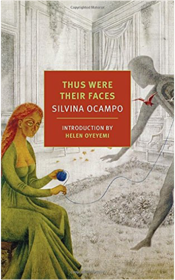 Thus Were Their Faces offers a comprehensive selection of the short fiction of Silvina Ocampo, undoubtedly one of the twentieth century’s great masters of the story and the novella. Here are tales of doubles and impostors, angels and demons, a marble statue of a winged horse that speaks, a beautiful seer who writes the autobiography of her own death, a lapdog who records the dreams of an old woman, a suicidal romance, and much else that is incredible, mad, sublime, and delicious. Italo Calvino has written that no other writer “better captures the magic inside everyday rituals, the forbidden or hidden face that our mirrors don’t show us.” Jorge Luis Borges flatly declared, “Silvina Ocampo is one of our best writers. Her stories have no equal in our literature.” Dark, gothic, fantastic, and grotesque, these haunting stories are among the world’s most individual and finest. A Chill in the Air: An Italian War Diary, 1939-1940 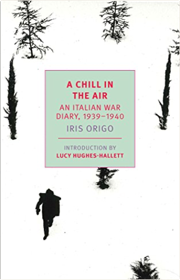 In 1939 it was not a foregone conclusion that Mussolini would enter World War II on the side of Hitler. In this previously unpublished and only recently discovered diary, Iris Origo, author of the classic War in Val d’Orcia, provides a vivid account of how Mussolini decided on a course of action that would devastate his country and ultimately destroy his regime. Though the British-born Origo lived with her Italian husband on an estate in a remote part of Tuscany, she was supremely well-connected and regularly in touch with intellectual and diplomatic circles in Rome, where her godfather, William Phillips, was the American ambassador. Her diary describes the Fascist government’s growing infatuation with Nazi Germany as Hitler’s armies marched triumphantly across Europe and the campaign of propaganda and intimidation that was mounted in support of its new aims. The book ends with the birth of Origo’s daughter and Origo’s decision to go to Rome to work with prisoners of war at the Italian Red Cross. Together with War in Val d’Orcia, A Chill in the Air offers an indispensable record of Italy at war as well as a thrilling story of a formidable woman’s transformation from observer to actor at a great historical turning point. Images and Shadows: Part of a Life 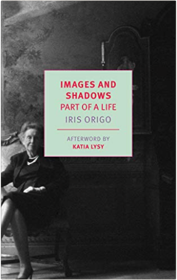 Images and Shadows, Iris Origo’s autobiographical account of her early life, is as perceptive and humane and beautifully written as her celebrated memoir War in Val d’Orcia. Origo’s father came from an old and moneyed American family, her mother was the daughter of an Irish peer, and Iris grew up in the most privileged of circumstances. Her father died of tuberculosis when he was only thirty, and her mother moved to Fiesole, Italy, where she and Iris developed a close friendship with the great connoisseur and art historian Bernard Berenson. Later, Origo and her Italian husband transformed a desolate and deforested Tuscan property into a flourishing estate, and it was there that she discovered her true calling as a writer. In Images and Shadows, Origo paints portraits of her shy, loving father and her headstrong mother, and describes beloved places, the books that formed her sensibility, and how she grew up and made her way in the world. She reflects on the pleasures and challenges of writing and evokes the persistence and fragility of memory. Images and Shadows is an autobiography that is as thoughtful as it is profoundly touching. Rock, Paper, Scissors: And Other Stories 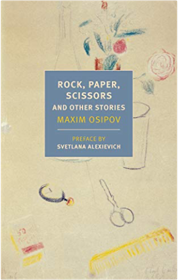 Maxim Osipov, who lives and practices medicine in a town ninety miles outside Moscow, is one of Russia’s best contemporary writers. In the tradition of Anton Chekhov and William Carlos Williams, he draws on his experiences in medicine to write stories of great subtlety and striking insight. Osipov’s fiction presents a nuanced, collage-like portrait of life in provincial Russia—its tragedies, frustrations, and moments of humble beauty and inspiration. The twelve stories in this volume depict doctors, actors, screenwriters, teachers, entrepreneurs, local political bosses, and common criminals whose paths intersect in unpredictable yet entirely natural ways: in sickrooms, classrooms, administrative offices and on trains and in planes. Their encounters lead to disasters, major and minor epiphanies, and—on occasion—the promise of redemption. Portraits without Frames 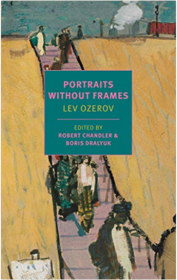 "We stopped and Shklovsky told me / quietly, but clearly, / 'Remember, we are on our way out. / On our way out.' And I recalled / ... the wall of books, / all written by a man / who lived / in times that were hard to bear." Lev Ozerov’s Portraits Without Frames offers fifty shrewd and moving glimpses into the lives of Soviet writers, composers, and artists caught between the demands of art and politics. Some of the subjects—like Anna Akhmatova, Isaac Babel, Andrey Platonov, and Dmitry Shostakovich—are well-known, others less so. All are evoked with great subtlety and vividness, as is the fraught and dangerous time in which they lived. Composed in free verse of deceptively artless simplicity, Ozerov’s portraits are like nothing else in Russian poetry. Boys Alive 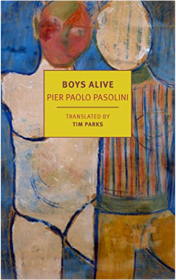 The Selected Works of Cesare Pavese 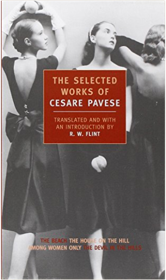 The Oceans of Cruelty: Twenty-Five Tales of a Corpse-Spirit: A Retelling 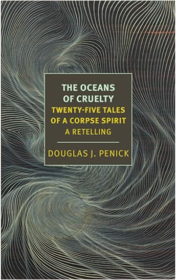 The Gray Notebook 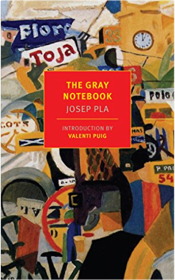 Pla, one of the great Catalan writers, held on to this youthful journal for close to fifty years, reworking and adding to it, until he finally published The Gray Notebook as both the first volume and the capstone of his collected works. It is a beautiful, entrancing, delightful book—at once a distillation of the spirit of youth and the work of a lifetime. Morte D'Urban 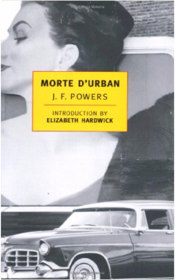 The hero of J.F. Powers's comic masterpiece is Father Urban, a man of the cloth who is also a man of the world. Charming, with an expansive vision of the spiritual life and a high tolerance for moral ambiguity, Urban enjoys a national reputation as a speaker on the religious circuit and has big plans for the future. But then the provincial head of his dowdy religious order banishes him to a retreat house in the Minnesota hinterlands. Father Urban soon bounces back, carrying God's word with undaunted enthusiasm through the golf courses, fishing lodges, and backyard barbecues of his new turf. Yet even as he triumphs his tribulations mount, and in the end his greatest success proves a setback from which he cannot recover. First published in 1962, Morte D'Urban has been praised by writers as various as Gore Vidal, William Gass, Mary Gordon, and Philip Roth. This beautifully observed, often hilarious tale of a most unlikely Knight of Faith is among the finest achievements of an author whose singular vision assures him a permanent place in American literature. Malacqua: Four Days of Rain in the City of Naples, Waiting for the Occurrence of an Extraordinary Event 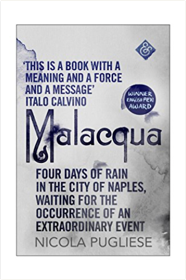 "A marvellous writer!" —Roberto Saviano Four days of rain trigger strange events across Naples: ghostly voices are heard and musical coins appear. As a journalist searches for meaning, we follow those enduring the floods. This portrait of a much-mythologized city captivated Italy when it was first published in 1977. Withdrawn at the author's request until his death in 2012, this is its first English publication. Nicola Pugliese (1944-2012) was born in Milan, but lived almost all his life in Naples. His only novel, Malacqua, was published by Italo Calvino. The Sweet Dove Died 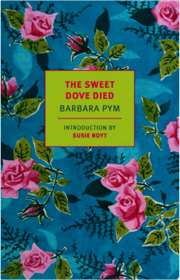 Storm 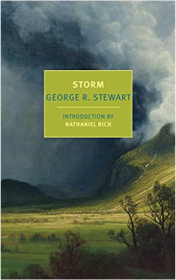 Abel and Cain 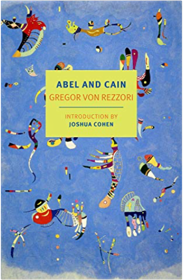 The Death of My Brother Abel and its delirious sequel, Cain, constitute the magnum opus of Gregor von Rezzori’s prodigious career, the most ambitious, extravagant, outrageous, and deeply considered achievement of this wildly original and never less than provocative master of the novel. In Abel and Cain, the original book, long out of print, is reissued in a fully revised translation; Cain appears for the first time in English. The Death of My Brother Abel zigzags across the middle of the twentieth century, from the 1918 to 1968, taking in the Jazz Age, the Anschluss, the Nuremberg trials, and postwar commercialism. At the center of the book is the unnamed narrator, holed up in a Paris hotel and writing a kind of novel, a collage of sardonic and passionate set pieces about love and work, sex and writing, families and nations, and human treachery and cruelty. In Cain, that narrator is revealed as Aristide Subics, or so at least it appears, since Subics’ identity is as unstable as the fictional apparatus that contains him and the times he lived through. Questions abound: How can a man who lived in a time of lies know himself? And is it even possible to tell the story of an era of lies truthfully? Primarily set in the bombed-out, rubble- strewn Hamburg of the years just after the war, the dark confusion and deadly confrontation and of Cain and Abel, inseparable brothers, goes on. The Word of the Speechless: Selected Stories 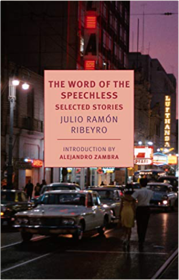 The Peruvian writer Julio Ramón Ribeyro is one of the masters of the short story and a major contributor to the great flourishing of Latin American literature that followed the Second World War. In a letter to an editor, Ribeyro said about his stories, “in most of [them] those who are deprived of words in life find expression—the marginalized, the forgotten, those condemned to an existence without harmony and without voice. I have restored to them the breath they’ve been denied, and I’ve allowed them to modulate their own longings, outbursts, and distress.” This is work of deep humanity, imbued with a disorienting lyricism that is Ribeyro’s alone. The Word of the Speechless, edited and translated by Katherine Silver, introduces readers to an indispensable and unforgettable voice of Latin American fiction. Ernesto 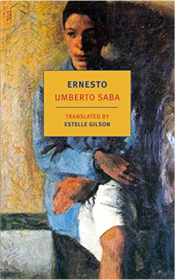 An NYRB Classics Original Ernesto is a classic of gay literature, a tender and complex tale of sexual awakening by one of Italy’s most admired poets. Ernesto is a sixteen-year-old boy from an educated family who lives with his mother in Trieste. His mother is eager for him to get ahead and has asked a local businessman to give him some workplace experience in his warehouse. One day a workingman makes advances to Ernesto, who responds with willing curiosity. A month of trysts ensues before the boy begins to tire of the relationship, finally escaping it altogether by engineering his own dismissal. And yet his experience has changed him, and as Umberto Saba’s unfinished, autobiographical story breaks off, Ernesto has struck up a new, oddly romantic attachment to a boy his own age. Selected Stories 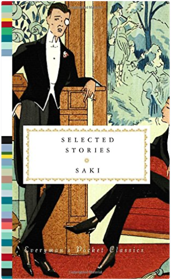 Saki's dazzling tales manage the remarkable feat of being anarchic and urbane at the same time. Studded with Wildean epigrams and featuring well-contrived plots and surprise endings, his stories gleefully skewer the pompous hypocrisies of upper class Edwardian society. But they go beyond mere satire, raising dark humor to extremes of entertaining outrageousness that have rarely since been matched. Saki's elegantly mischievous young heroes sow chaos in their wake without breaking a sweat, and are occasionally joined by werewolves, tigers, eavesdropping house pets, and casually murderous children. This selection includes such famous stories as "Tobermory," "The Open Window," "Sredni Vashtar," "Mrs. Packletide's Tiger," "The Schartz-Metterklume Method," and many more. Uncertain Glory 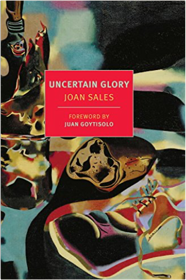 Spain, 1937. Posted to the Aragonese front, Lieutenant Lluís Ruscalleda eschews the drunken antics of his comrades and goes in search of intrigue. But the lady of Castel de Olivo—a beautiful widow with a shadowy past—puts a high price on her affections. In Barcelona, Trini Milmany struggles to raise Lluís’s son on her own, letters from the front her only solace. With bombs falling as fast as the city’s morale, she leaves to spend the winter with Lluís’s brigade on a quiet section of the line. But even on “dead” fronts the guns do not stay silent for long. Trini’s decision will put her family’s fate in the hands of Juli Soleràs, an old friend and a traitor of easy conscience, a philosopher-cynic locked in an eternal struggle with himself. Joan Sales, a combatant in the Spanish Civil War, distilled his experiences into a timeless story of thwarted love, lost youth, and crushed illusions. A thrilling epic that has drawn comparison with the work of Dostoyevsky and Stendhal, Uncertain Glory is a homegrown counterpart to classics such as Homage to Catalonia and For Whom the Bell Tolls. Season of Migration to the North 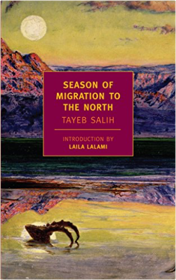 The Village Of Ben Suc  Walter Benjamin: The Story of a Friendship 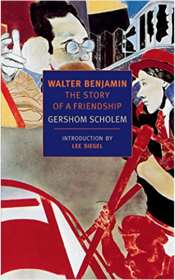 The Wine-Dark Sea 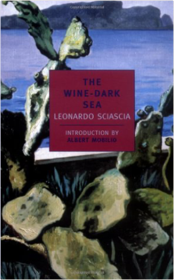 The Dead Girls' Class Trip: Selected Stories 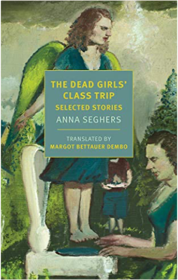 Kolyma Stories 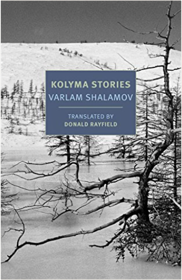 Kolyma Stories is a masterpiece of twentieth-century literature, an epic array of short fictional tales reflecting the fifteen years that Varlam Shalamov spent in the Soviet Gulag. This is the first of two volumes (the second to appear in 2019) that together will constitute the first complete English translation of Shalamov’s stories and the only one to be based on the authorized Russian text. Shalamov spent six years as a slave in the gold mines of Kolyma before finding a less intolerable life as a paramedic in the prison camps. He began writing his account of life in Kolyma after Stalin’s death in 1953. His stories are at once the biography of a rare survivor, a historical record of the Gulag, and a literary work of unparalleled creative power, insight, and conviction. The Peach Blossom Fan 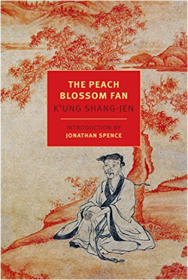 In the mid-1640s, famine sweeps through China. The Ming dynasty, almost 300 years old, lurches to a bloody end. Peking falls to the Manchus, the emperor hangs himself, and Ming loyalists take refuge in the southern capital of Nanking. Two valiant generals seek to defend the city, but nothing can overcome the corruption, decadence, and factionalism of the court in exile. The newly installed emperor cares for nothing but theater, leaving practical matters to the insidious Ma Shih-ying. Ma’s crony Juan Ta-ch’eng is as unscrupulous an operator as he is sophisticated a poet. He diverts resources from the starving troops in order to stage a spectacular production of his latest play. History, however, has little time for make-believe, though the earnest members of the Revival Club, centered on the handsome young scholar Hou Fang-yü and his lover Fragrant Princess, struggle to discover a happy ending. Store of the Worlds: The Stories of Robert Sheckley 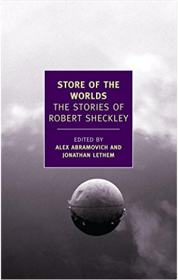 Robert Sheckley was an eccentric master of the American short story, and his tales, whether set in dystopic cityscapes, ultramodern advertising agencies, or aboard spaceships lighting out for hostile planets, are among the most startlingly original of the twentieth century. Today, as the new worlds, alternate universes, and synthetic pleasures Sheckley foretold become our reality, his vision begins to look less absurdist and more prophetic. This retrospective selection, chosen by Jonathan Lethem and Alex Abramovich, brings together the best of Sheckley’s deadpan farces, proving once again that he belongs beside such mordant critics of contemporary mores as Bruce Jay Friedman, Terry Southern, and Thomas Pynchon. Dime-Store Alchemy: The Art of Joseph Cornell 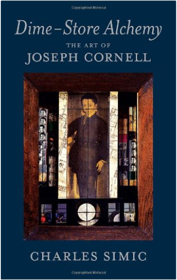 In Dime-Store Alchemy, poet Charles Simic reflects on the life and work of Joseph Cornell, the maverick surrealist who is one of America’s great artists. Simic’s spare prose is as enchanting and luminous as the mysterious boxes of found objects for which Cornell is justly renowned. Mary Olivier: A Life 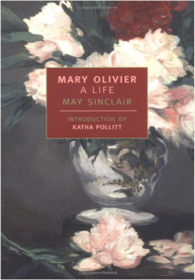 As a child, Mary Olivier's dreamy disposition and fierce intelligence set her apart from her Victorian family, especially her mother, "Little Mamma," whose dazzling looks cannot hide her meager love for her only daughter. Mary grows up in a world of her own, a solitude that leaves her free to explore her deepest passions, for literature and philosophy, for the austere beauties of England's north country, even as she continues to attend to her family. But in time the independence Mary values—at almost any cost—threatens to become a form of captivity itself. The Stone Face 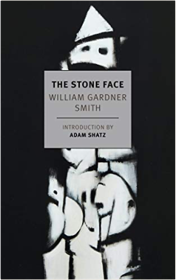 A School for Fools 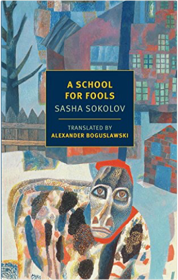 Lost Property: Memoirs and Confessions of a Bad Boy 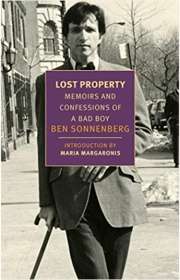 Telluria 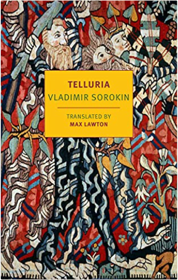 The Gate 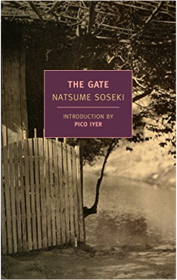 Is that Kafka?: 99 Finds  In the course of compiling his highly acclaimed three-volume biography of Kafka, while foraying to libraries and archives from Prague to Israel, Reiner Stach made one astounding discovery after another: unexpected photographs, inconsistencies in handwritten texts, excerpts from letters, and testimonies from Kafka’s contemporaries that shed surprising light on his personality and his writing. Is that Kafka? presents the crystal granules of the real Kafka: he couldn’t lie, but he tried to cheat on his high-school exams; bitten by the fitness fad, he avidly followed the regime of a Danish exercise guru; he drew beautifully; he loved beer; he read biographies voraciously; he made the most beautiful presents, especially for children; odd things made him cry or made him furious; he adored slapstick. Every discovery by Stach turns on its head the stereotypical version of the tortured neurotic―and as each one chips away at the monolithic dark Kafka, the keynote, of all things, becomes laughter. For Is that Kafka? Stach has assembled 99 of his most exciting discoveries, culling the choicest, most entertaining bits, and adding his knowledge-able commentaries. Illustrated with dozens of previously unknown images, this volume is a singular literary pleasure. The Judges of the Secret Court: A Novel About John Wilkes Booth 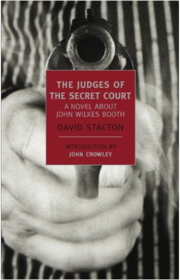 Fire 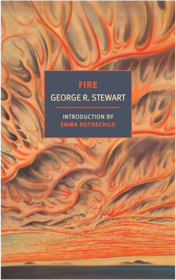 As a Man Grows Older 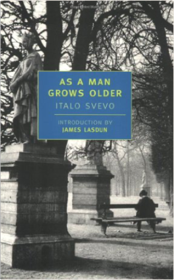 Abigail 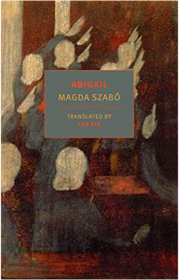 The Door 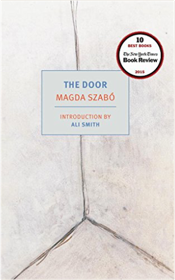 An NYRB Classics Original The Door is an unsettling exploration of the relationship between two very different women. Magda is a writer, educated, married to an academic, public-spirited, with an on-again-off-again relationship to Hungary’s Communist authorities. Emerence is a peasant, illiterate, impassive, abrupt, seemingly ageless. She lives alone in a house that no one else may enter, not even her closest relatives. She is Magda’s housekeeper and she has taken control over Magda’s household, becoming indispensable to her. And Emerence, in her way, has come to depend on Magda. They share a kind of love—at least until Magda’s long-sought success as a writer leads to a devastating revelation. Len Rix’s prizewinning translation of The Door at last makes it possible for American readers to appreciate the masterwork of a major modern European writer. Iza's Ballad 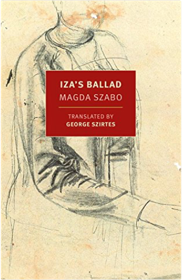 An NYRB Classics Original Like Magda Szabó’s internationally acclaimed novel The Door, Iza’s Ballad is a striking story of the relationship between two women, in this case a mother and a daughter. Ettie, the mother, is old and from an older world than the rapidly modernizing Communist Hungary of the years after World War II. From a poor family and without formal education, Ettie has devoted her life to the cause of her husband, Vince, a courageous magistrate who had been blacklisted for political reasons before the war. Iza, their daughter, is as brave and conscientious as her father: Active in the resistance against the Nazis, she is now a doctor and a force for progress. Iza lives and works in Budapest, and when Vince dies, she is quick to bring Ettie to the city to make sure her mother is close and can be cared for. She means to do everything right, and Ettie is eager to do everything to the satisfaction of the daughter she is so proud of. But good intentions aside, mother and daughter come from two different worlds and have different ideas of what it means to lead a good life. Though they struggle to accommodate each other, increasingly they misunderstand and hurt each other, and the distance between them widens into an abyss. . . . Katalin Street 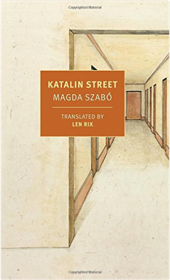 From the author of The Door, selected as one of the New York Times "10 Best Books of 2015," this is a heartwrenching tale about a group of friends and lovers torn apart by the German occupation of Budapest during World War II. In prewar Budapest three families live side by side on gracious Katalin Street, their lives closely intertwined. A game is played by the four children in which Bálint, the promising son of the Major, invariably chooses Irén Elekes, the headmaster’s dutiful elder daughter, over her younger sister, the scatterbrained Blanka, and little Henriette Held, the daughter of the Jewish dentist. Their lives are torn apart in 1944 by the German occupation, which only the Elekes family survives intact. The postwar regime relocates them to a cramped Soviet-style apartment and they struggle to come to terms with social and political change, personal loss, and unstated feelings of guilt over the deportation of the Held parents and the death of little Henriette, who had been left in their protection. But the girl survives in a miasmal afterlife, and reappears at key moments as a mute witness to the inescapable power of past events. As in The Door and Iza’s Ballad, Magda Szabó conducts a clear-eyed investigation into the ways in which we inflict suffering on those we love. Katalin Street, which won the 2007 Prix Cévennes for Best European novel, is a poignant, somber, at times harrowing book, but beautifully conceived and truly unforgettable. Divorcing 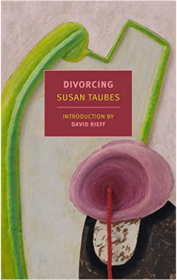 Mrs. Palfrey at the Claremont 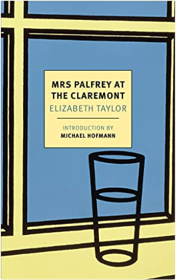 Other Worlds: Peasants, Pilgrims, Spirits, Saints 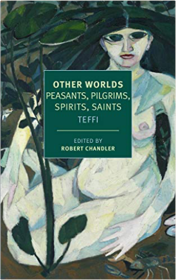 Kapo 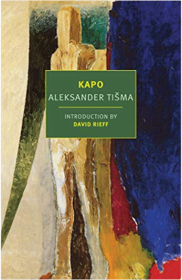 Castle Gripsholm 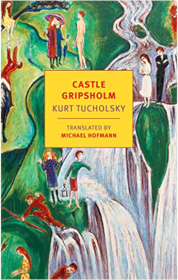 Castle Gripsholm, the best and most beloved work by Kurt Tucholsky, is a short novel about an enchanted summer holiday. It begins with an assignment: Tucholsky’s publisher wants him to write something light and funny, otherwise about whatever Tucholsky wants. A deal is struck and the story is off: about Peter, a writer; his girlfriend, known as the Princess; and a summer vacation far from the hurly-burly of Berlin. Peter and the Princess have rented a small house attached to a historic castle in Sweden, and they have five weeks of long days and white nights at their disposal; five weeks for swimming and walking and sex and talking and visits with Peter’s buddy Karlchen and with Billy, the Princess’s best friend. It is perfect, until they meet a weeping girl fleeing the cruel headmistress of a home for children. The vacationers decide they must free the girl and send her back to her mother in Switzerland, which brings about an encounter with authority that casts a worrying shadow over their radiant summer idyll. Soon they must return to Germany. What kind of fairy tale are they living in? The Kindness of Strangers 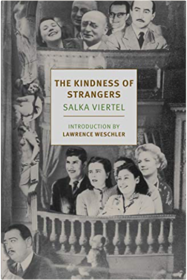 Salka Viertel’s autobiography tells of a brilliant, creative, and well-connected woman’s pilgrimage through the darkest years of the twentieth century, a journey that would take her from a remote province of the Austro-Hungarian Empire to Hollywood. The Kindness of Strangers is, to quote the New Yorker writer S. N. Behrman, “a very rich book. It provides a panorama of the dissolving civilizations of the twentieth century. In all of them the author lived at the apex of their culture and artistic aristocracies. Her childhood . . . is an entrancing idyll. In Berlin, in Prague, in Vienna, there appears Karl Kraus, Kafka, Rilke, Robert Musil, Schoenberg, Einstein, Alban Berg. There is the suffering and disruption of the First World War and the suffering and agony after it, which is described with such intimacy and vividness that you endure these terrible years with the author. Then comes the migration to Hollywood, where Salka’s house on Mabery Road becomes a kind of Pantheon for the gathered artists, musicians, and writers. It seems to me that no one has ever described Hollywood and the life of writers there with such verve.” The Tenants of Moonbloom 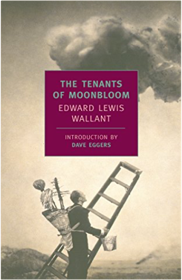 Edward Lewis Wallant's astonishing comic tour de force is a neglected masterpiece of 1960s America. Berlin Stories 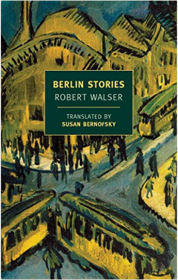 In 1905 the young Swiss writer Robert Walser arrived in Berlin to join his older brother Karl, already an important stage-set designer, and immediately threw himself into the vibrant social and cultural life of the city. Berlin Stories collects his alternately celebratory, droll, and satirical observations on every aspect of the bustling German capital, from its theaters, cabarets, painters’ galleries, and literary salons, to the metropolitan street, markets, the Tiergarten, rapid-service restaurants, and the electric tram. Originally appearing in literary magazines as well as the feuilleton sections of newspapers, the early stories are characterized by a joyous urgency and the generosity of an unconventional guide. Later pieces take the form of more personal reflections on the writing process, memories, and character studies. All are full of counter-intuitive images and vignettes of startling clarity, showcasing a unique talent for whom no detail was trivial, at grips with a city diving headlong into modernity. Little Snow Landscape 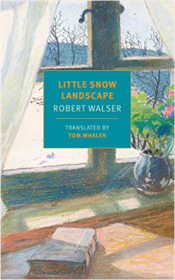 A Schoolboy's Diary and Other Stories 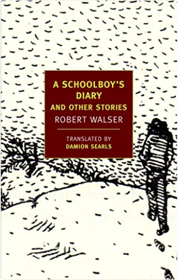 The Corner That Held Them 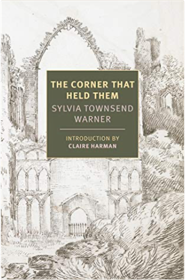 Sylvia Townsend Warner’s The Corner That Held Them is a historical novel like no other, one that immerses the reader in the dailiness of history, rather than history as the given sequence of events that, in time, it comes to seem. Time ebbs and flows and characters come and go in this novel, set in the era of the Black Death, about a Benedictine convent of no great note. The nuns do their chores, and seek to maintain and improve the fabric of their house and chapel, and struggle with each other and with themselves. The book that emerges is a picture of a world run by women but also a story—stirring, disturbing, witty, utterly entrancing—of a community. What is the life of a community and how does it support, or constrain, a real humanity? How do we live through it and it through us? These are among the deep questions that lie behind this rare triumph of the novelist’s art. Heaven's Breath: A Natural History of the Wind 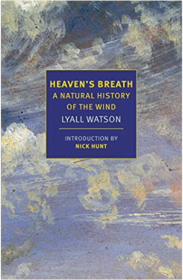 Heaven’s Breath is an encyclopedic and enchanting book that opens dazzling new perspectives on history, nature, and humanity. Charisma and Disenchantment: The Vocation Lectures 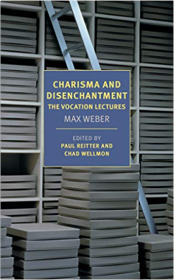 The German sociologist Max Weber is one of the most venturesome, stimulating, and influential theorists of the modern condition. Among his most significant works are the so-called vocation lectures, published shortly after the end of World War I and delivered at the invitation of a group of student activists. The question the students asked Weber to address was simple and haunting: In a modern world characterized by the division of labor, economic expansion, and unrelenting change, was it still possible to consider an academic or political career as a genuine calling? In response Weber offered his famous diagnosis of “the disenchantment of the world,” along with a challenging account of the place of morality in the classroom and in research. In his second lecture he introduced the notion of political charisma, assigning it a central role in the modern state, even as he recognized that politics is more than anything “a slow and difficult drilling of holes into hard boards.” Damion Searls’s new translation brings out the power and nuance of these celebrated lectures. Paul Reitter and Chad Wellmon’s introduction describes their historical and biographical background, reception, and influence. Weber’s effort to rethink the idea of a public calling at the start of the tumultuous twentieth century is revealed to be as timely and stirring as ever. Basic Black With Pearls 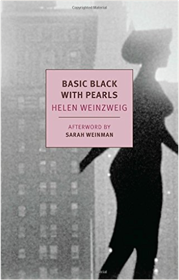 Shirley and Coenraad’s affair has been going on for decades, but her longing for him is as desperate as ever. She is a Toronto housewife; he works for an international organization known only as the Agency. Their rendezvous take place in Tangier, in Hong Kong, in Rome and are arranged by an intricate code based on notes slipped into issues of National Geographic. He recognizes her by her costume: a respectable black dress and string of pearls; his appearance, however, is changeable. But something has happened, the code has been discovered, and Coenraad sends Shirley (who prefers to be known as “Lola Montez”) to Toronto, the last place she wants to go. There the trail leads her through the sites of her impoverished immigrant childhood and sends her, finally, to her own house, where she discards her pearls and trades in her basic black for a dress of vibrant multicolored silk. Helen Weinzweig published her first novel when she was fifty-eight. Basic Black with Pearls, her second, won the Toronto Book Award and has since come to be recognized as a feminist landmark. Here Weinzweig imbues the formal inventiveness of the nouveau roman with psychological poignancy and surprising humor to tell a story of simultaneous dissolution and discovery. The Frog in the Throat 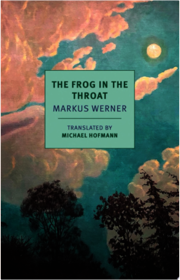 Apartment in Athens 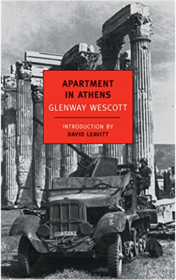 The Pilgrim Hawk: A Love Story 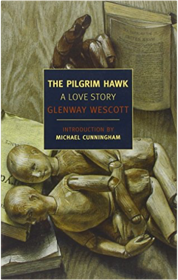 A work of classical elegance and concision, The Pilgrim Hawk stands with Faulkner’s The Bear as one of the ï¬nest American short novels: a beautifully crafted story that is also a poignant evocation of the implacable power of love. Riders in the Chariot 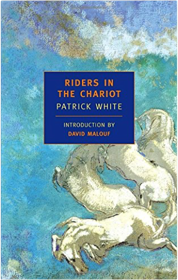 English Renaissance Poetry: A Collection of Shorter Poems from Skelton to Jonson 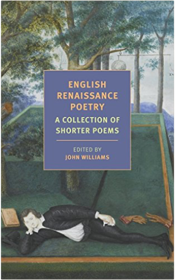 Poetry in English as we know it was largely invented in England between the early 1500s and 1630, and yet for many years the poetry of the era was considered little more than a run-up to Shakespeare. The twentieth century brought a reevaluation, and the English Renaissance has since come to be recognized as the period of extraordinary poetic experimentation that it was. Never since have the possibilities of poetic form and, especially, poetic voice—from the sublime to the scandalous and slangy—been so various and inviting. This is poetry that speaks directly across the centuries to the renaissance of poetic exploration in our own time. John Williams’s celebrated anthology includes not only some of the most famous poems by some of the most famous poets of the English language (Sir Thomas Wyatt, John Donne, and of course Shakespeare) but also-—-and this is what makes Williams’s book such a rare and rich resource—the strikingly original work of little-known masters like George Gascoigne and Fulke Greville. Nothing but the Night 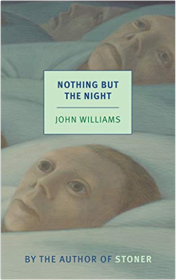 John Williams’s first novel is a brooding psychological noir. Arthur Maxley is a young man at the end of his emotional rope. Having dropped out of college, he’s holed up in a big-city hotel, living off an allowance from his family, feeling nothing but alone and doing nothing but drinking to forget it. What’s brought him to this point? Something is troubling him, something is haunting him, something he cannot bring himself either to face or to turn away from. And now his father has come to town, a hail-fellow-well-met kind of guy. They’ve been estranged for years, and yet Arthur wants to meet—and so he does, reeling away from the encounter for a night of drinking and dancing and a final reckoning with the traumatizing past that readers will not soon forget. This edition of Nothing but the Night includes an interview with Nancy Gardner Williams, the author’s widow. Stoner 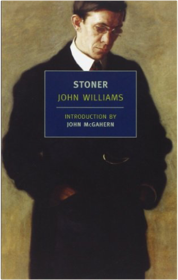 John Williams’s luminous and deeply moving novel is a work of quiet perfection. William Stoner emerges from it not only as an archetypal American, but as an unlikely existential hero, standing, like a figure in a painting by Edward Hopper, in stark relief against an unforgiving world. Tarka the Otter 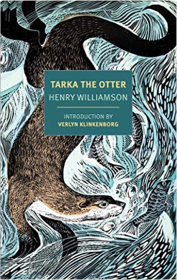 To the Finland Station 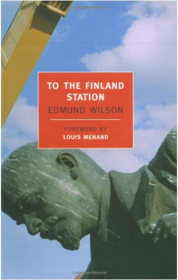 Germs: A Memoir of Childhood 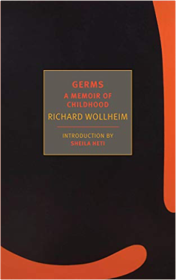 Chocky 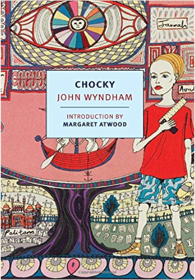 It’s not terribly unusual for a boy to have an imaginary friend, but Matthew’s parents have to agree that his—nicknamed Chocky—is anything but ordinary. Why, Chocky demands to know, are there twenty-four hours in a day? Why are there two sexes? Why can’t Matthew solve his math homework using a logical system like binary code? When the questions Chocky asks become too advanced and, frankly, too odd for teachers to answer, Matthew’s parents start to wonder if Chocky might be something far stranger than a figment of their son’s imagination. Chocky, the last novel Wyndham published during his life, is a playful investigation of what being human is all about, delving into such matters as child-rearing, marriage, learning, artistic inspiration—and ending with a surprising and impassioned plea for better human stewardship of the earth. Beware of Pity 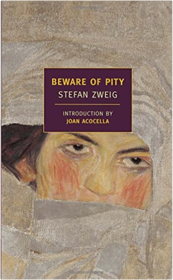 "Stefan Zweig was a dark and unorthodox artist; it's good to have him back."—Salman Rushdie The great Austrian writer Stefan Zweig was a master anatomist of the deceitful heart, and Beware of Pity, the only novel he published during his lifetime, uncovers the seed of selfishness within even the finest of feelings. Hofmiller, an Austro-Hungarian cavalry officer stationed at the edge of the empire, is invited to a party at the home of a rich local landowner, a world away from the dreary routine of the barracks. The surroundings are glamorous, wine flows freely, and the exhilarated young Hofmiller asks his host's lovely daughter for a dance, only to discover that sickness has left her painfully crippled. It is a minor blunder that will destroy his life, as pity and guilt gradually implicate him in a well-meaning but tragically wrongheaded plot to restore the unhappy invalid to health. Chess Story 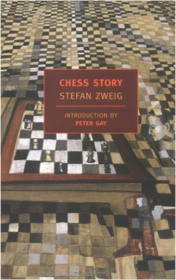 Travelers sailing from New York to Buenos Aires find that on board with them is the world champion of chess. He is, as they soon discover, an arrogant and unfriendly man. They gather together to try their skills against him and are soundly defeated. Then a mysterious passenger steps forward to advise them and their fortunes change. How he came to possess his extraordinary grasp of the game of chess and at what cost lie at the heart of Zweig’s story, which is also a meditation on the burden of memory and the ways in which resistance and vulnerability are entwined in the human spirit. The Post-Office Girl 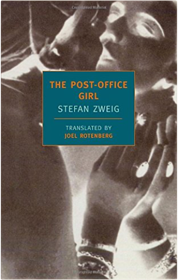 The post-office girl is Christine, who looks after her ailing mother and toils in a provincial Austrian post office in the years just after the Great War. One afternoon, as she is dozing among the official forms and stamps, a telegraph arrives addressed to her. It is from her rich aunt, who lives in America and writes requesting that Christine join her and her husband in a Swiss Alpine resort. After a dizzying train ride, Christine finds herself at the top of the world, enjoying a life of privilege that she had never imagined. But Christine’s aunt drops her as abruptly as she picked her up, and soon the young woman is back at the provincial post office, consumed with disappointment and bitterness. Then she meets Ferdinand, a wounded but eloquent war veteran who is able to give voice to the disaffection of his generation. Christine’s and Ferdinand’s lives spiral downward, before Ferdinand comes up with a plan which will be either their salvation or their doom. Never before published in English, this extraordinary book is an unexpected and haunting foray into noir fiction by one of the masters of the psychological novel. |


Delicious Library
Collection Total:
3,640 Items
3,640 Items
Last Updated:
Nov 2, 2025
Nov 2, 2025


 Made with Delicious Library
Made with Delicious Library